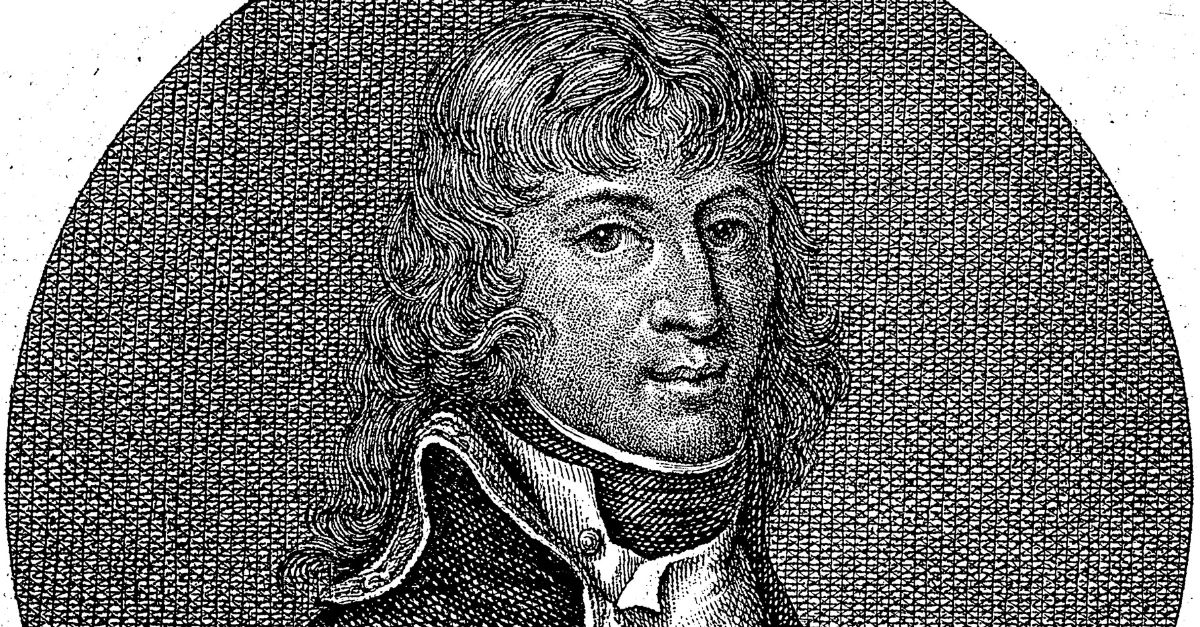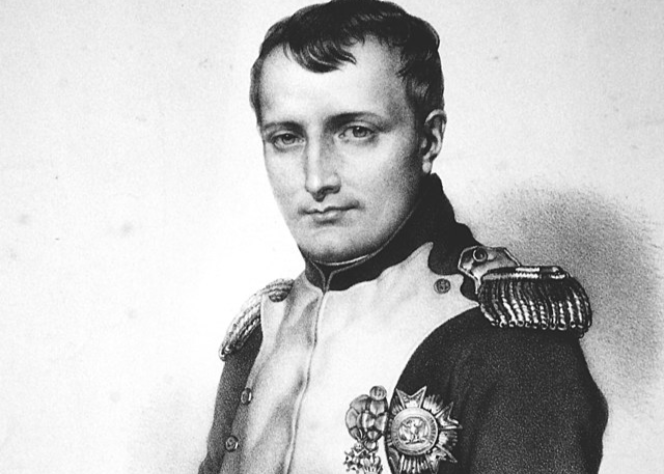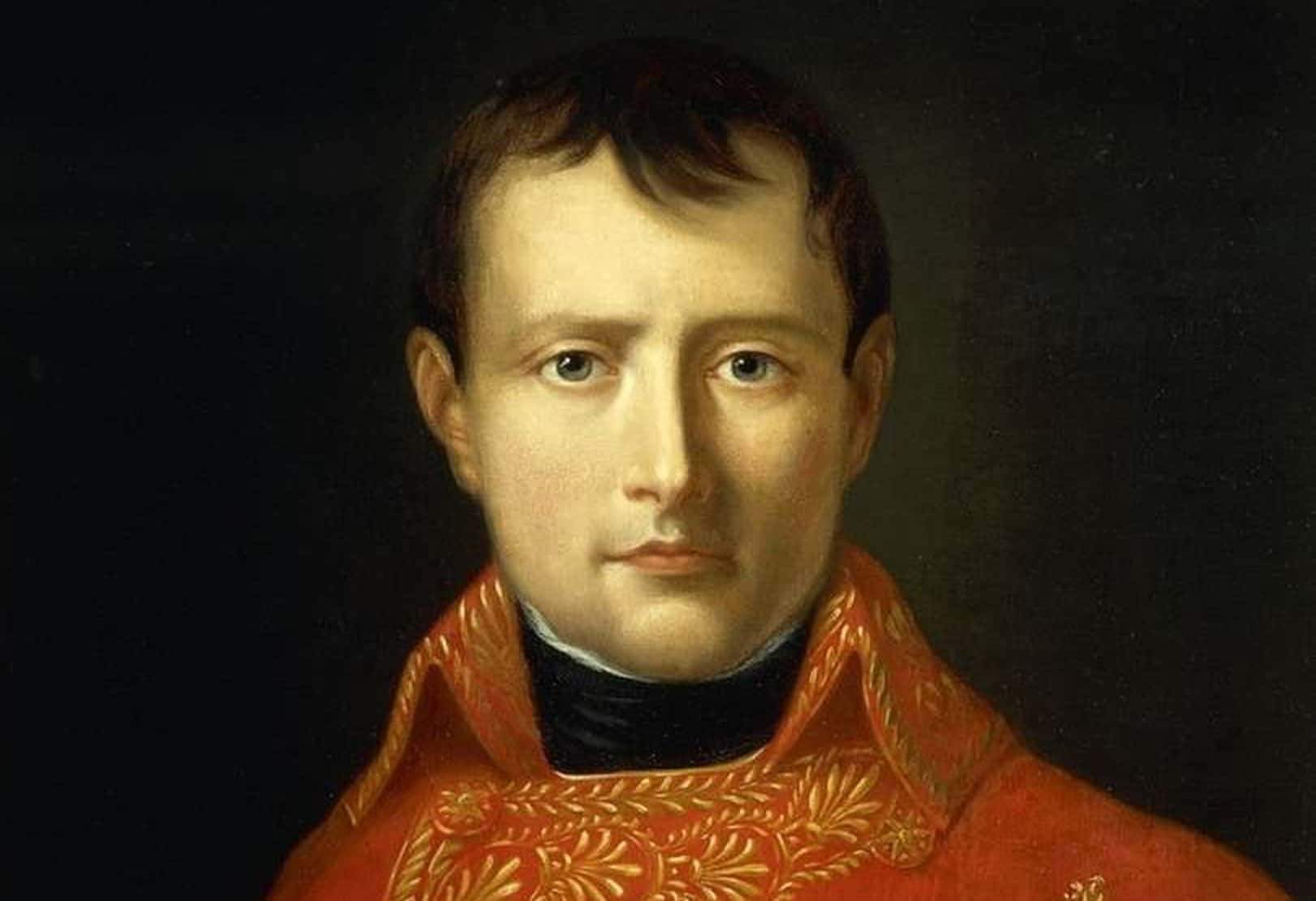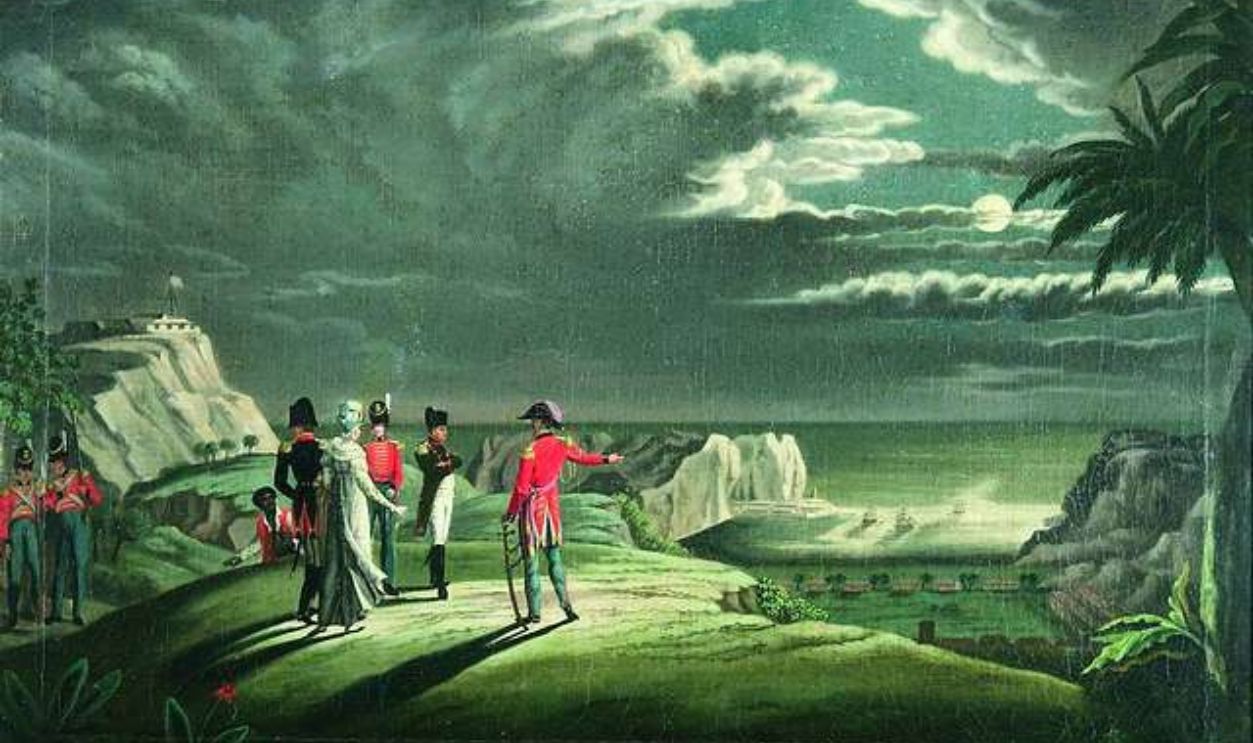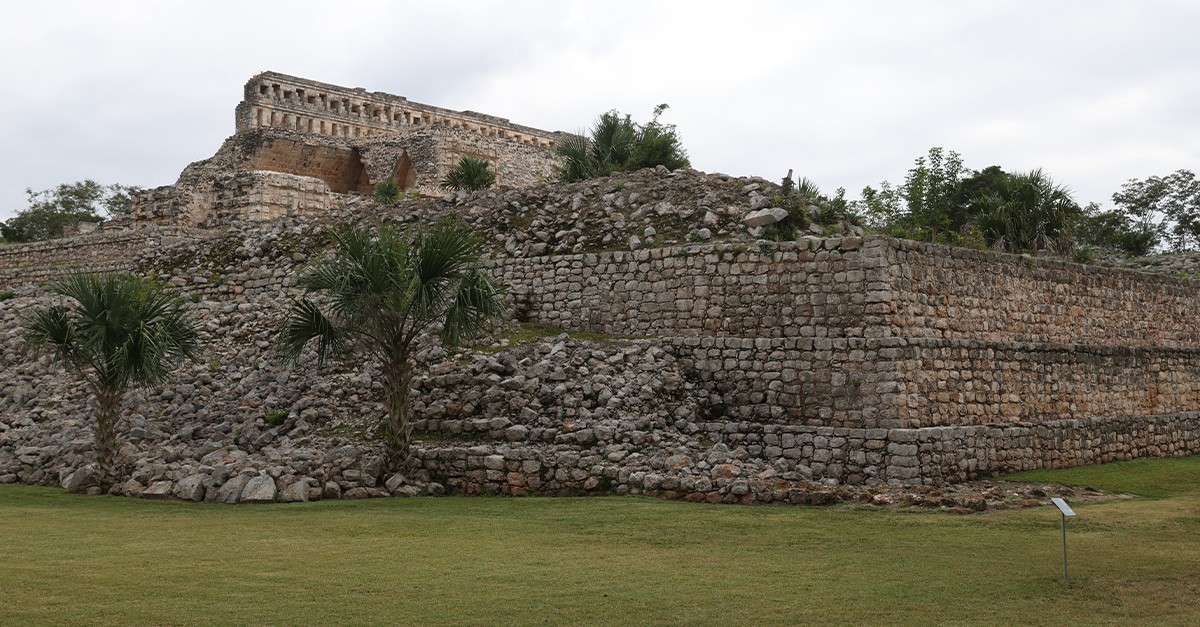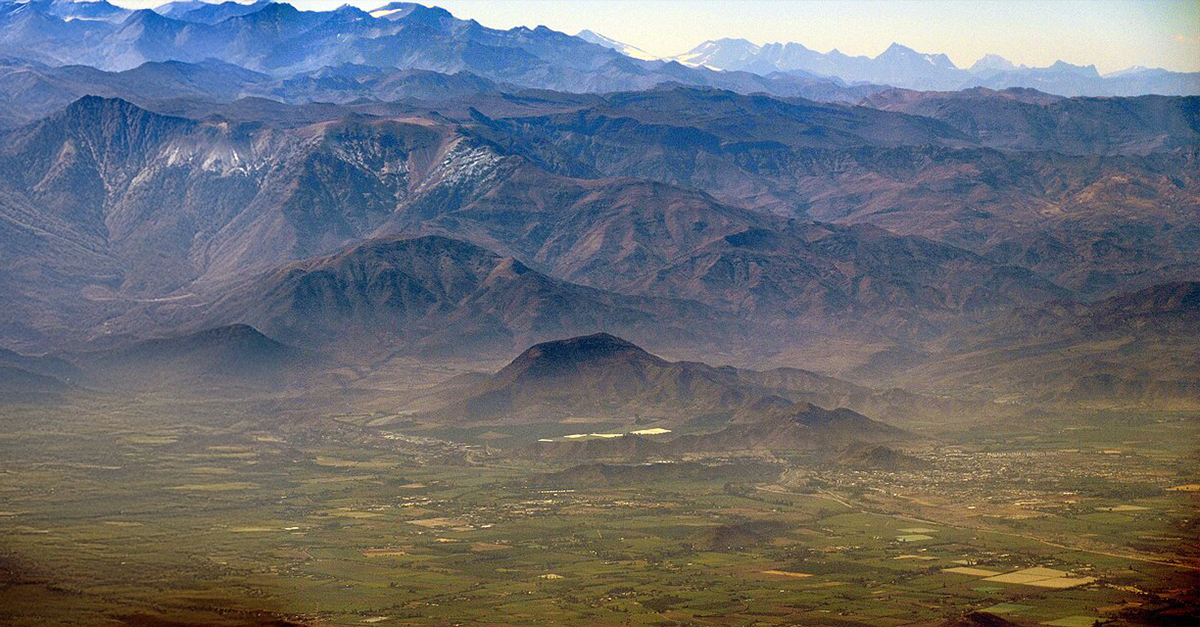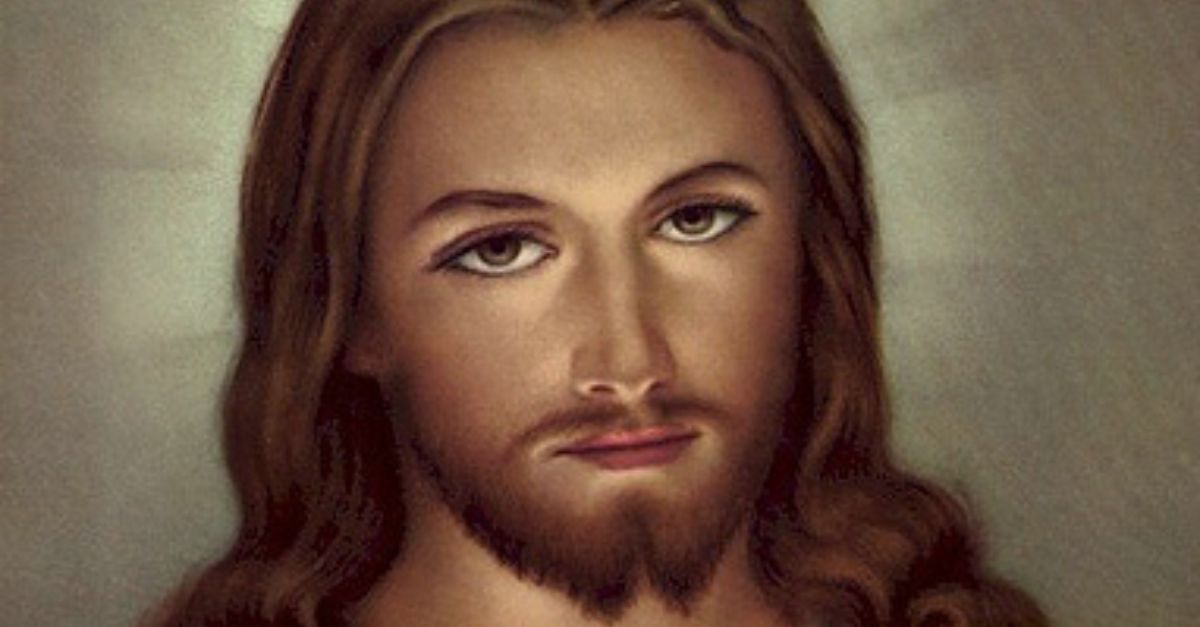Right Behind Jesus
In a 2013 book called Who's Bigger?, which ranks historical figures, Napoleon was listed second after Jesus. Let's see how, why, and what made him so powerful.

The Unbeatable Napoleon
Remarking on his brilliance as a general, Napoleon led his army in more than 80 battles and won nearly 90% of them. He created modern combat, and many believe him to be the greatest strategist ever. You'll see what we mean when we say he was born a fighter.
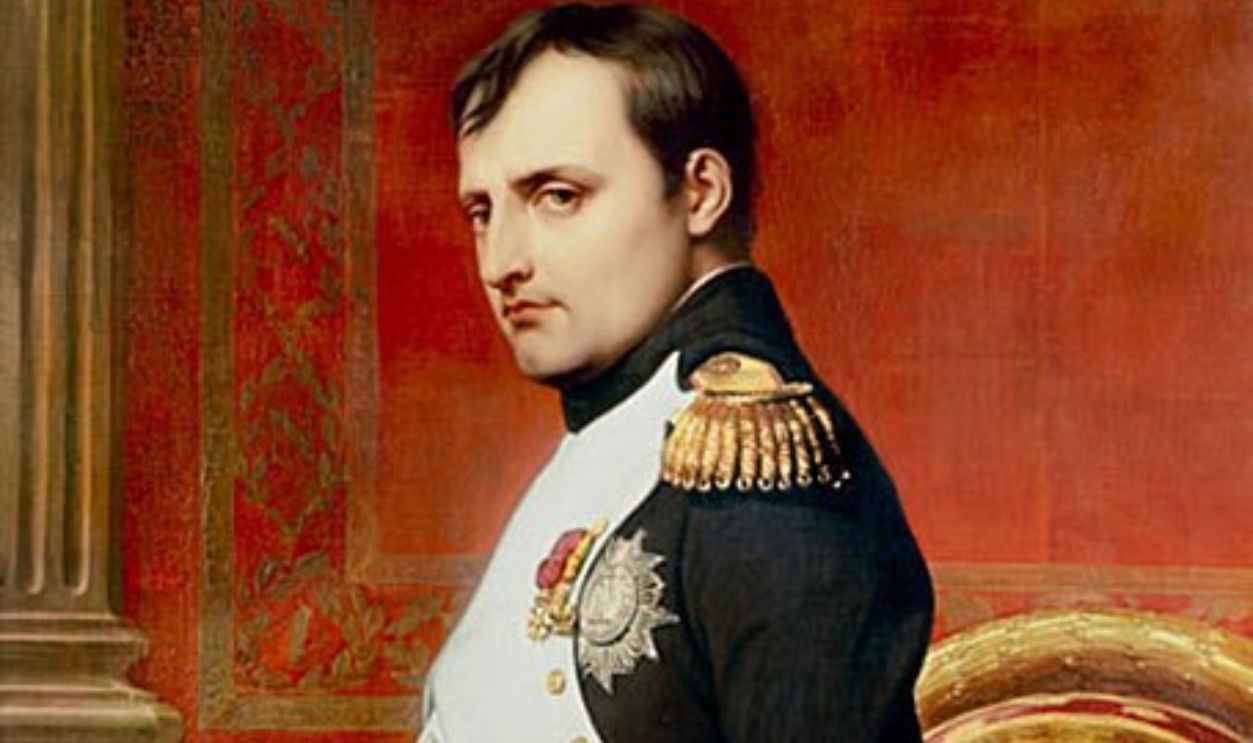 Paul Delaroche, Wikimedia Commons
Paul Delaroche, Wikimedia Commons
Early Years
On August 15, 1769, Napoleon was born on the French island of Corsica. At that time, Corsica was its own independent place. But soon after, the French took over after buying it from its previous owner, the Republic of Genoa.
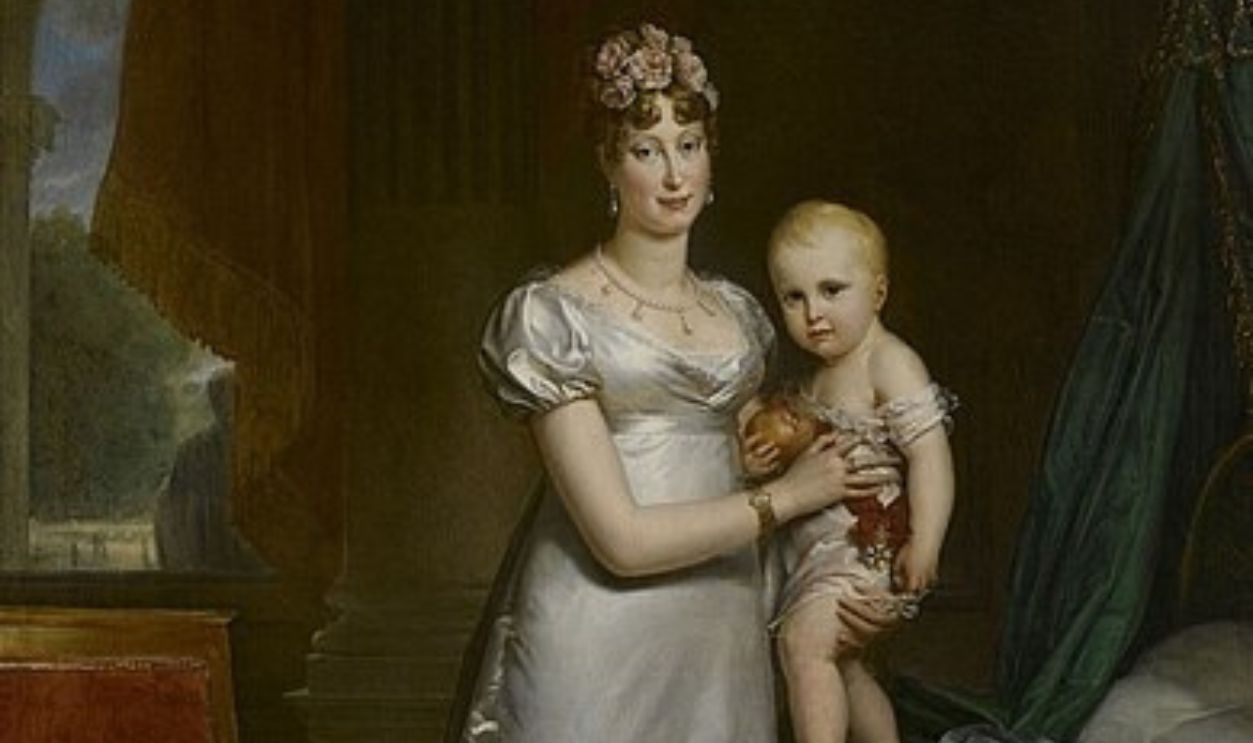 François Gérard, Wikimedia Commons
François Gérard, Wikimedia Commons
Napoleon's Mother Joins The Fight
Even though she was six months pregnant, Napoleon's mother fought alongside his father and the French army. They were battling against French rebels in a very tough and brutal conflict. Her bravery was remarkable, considering the danger and difficulties they faced.
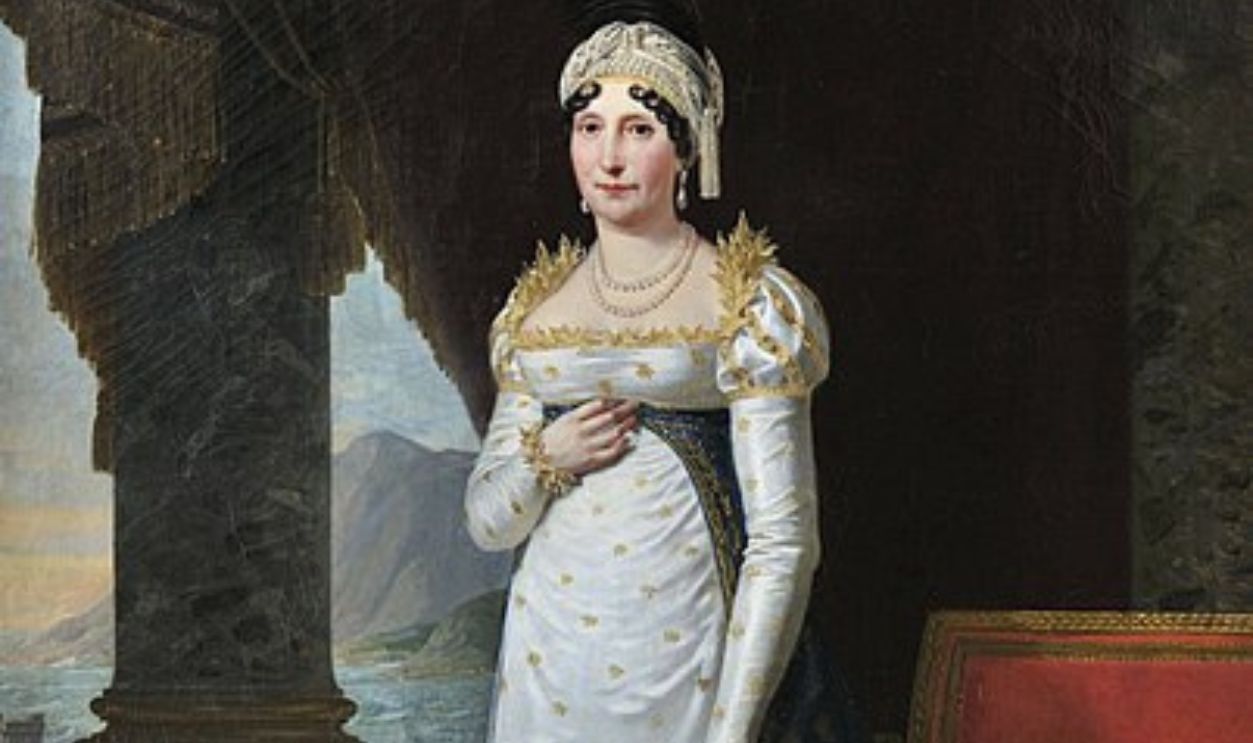 Robert Lefèvre, Wikimedia Commons
Robert Lefèvre, Wikimedia Commons
France's Wealth And Corsica's Struggles
At that time, France was one of the richest countries in Europe. Corsica, where Napoleon was from, was much poorer and struggled against France. The island struggled a lot because it couldn't match France's strength and wealth.
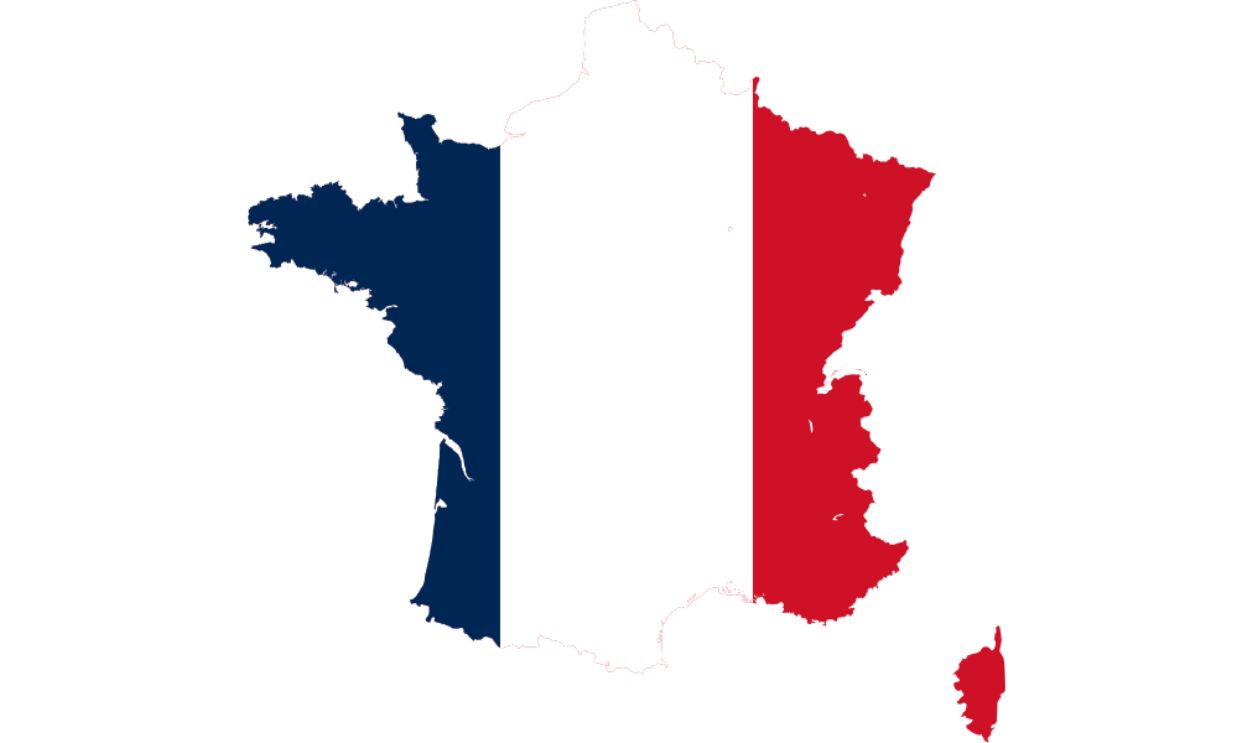 Lokal_Profil, Wikimedia Commons
Lokal_Profil, Wikimedia Commons
School Days
At the age of 9, Napoleon was sent to a French boarding school, but he didn't like it much. A year later, he won a scholarship to a top defense academy. By 16, he was learning quickly, but promotions didn't come as fast as he hoped.
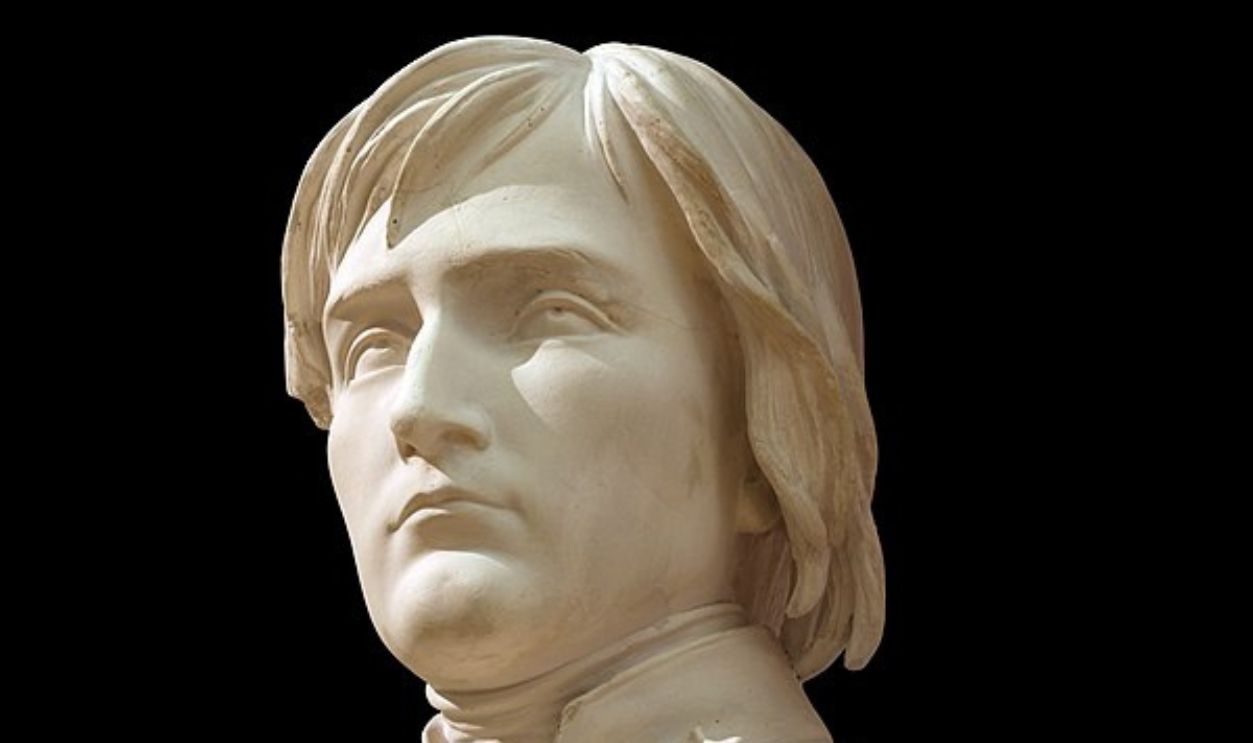 Louis Rochet, CC BY-SA 2.0, Wikimedia Commons
Louis Rochet, CC BY-SA 2.0, Wikimedia Commons
The French Social Structure
Back then, in France, society was divided into clear layers. At the top were the Church leaders, followed by rich and noble families. The common people were at the bottom. This hierarchy made it tough for Napoleon, a commoner, to climb the ladder.
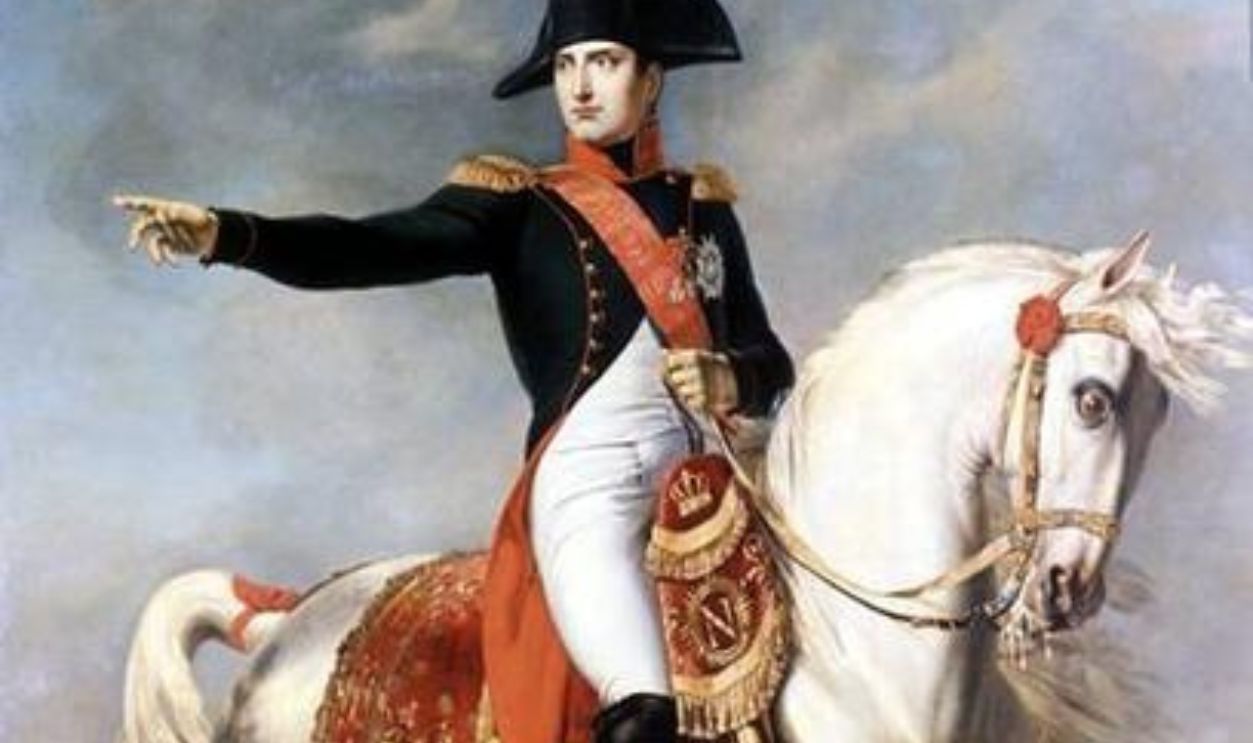 Unknown author, Wikimedia Commons
Unknown author, Wikimedia Commons
The French Revolution
Then the French Revolution happened. The revolutionaries took down the monarchy and took away the special rights of the aristocrats. France was declared a republic, meaning it was now ruled by politicians elected by the people.
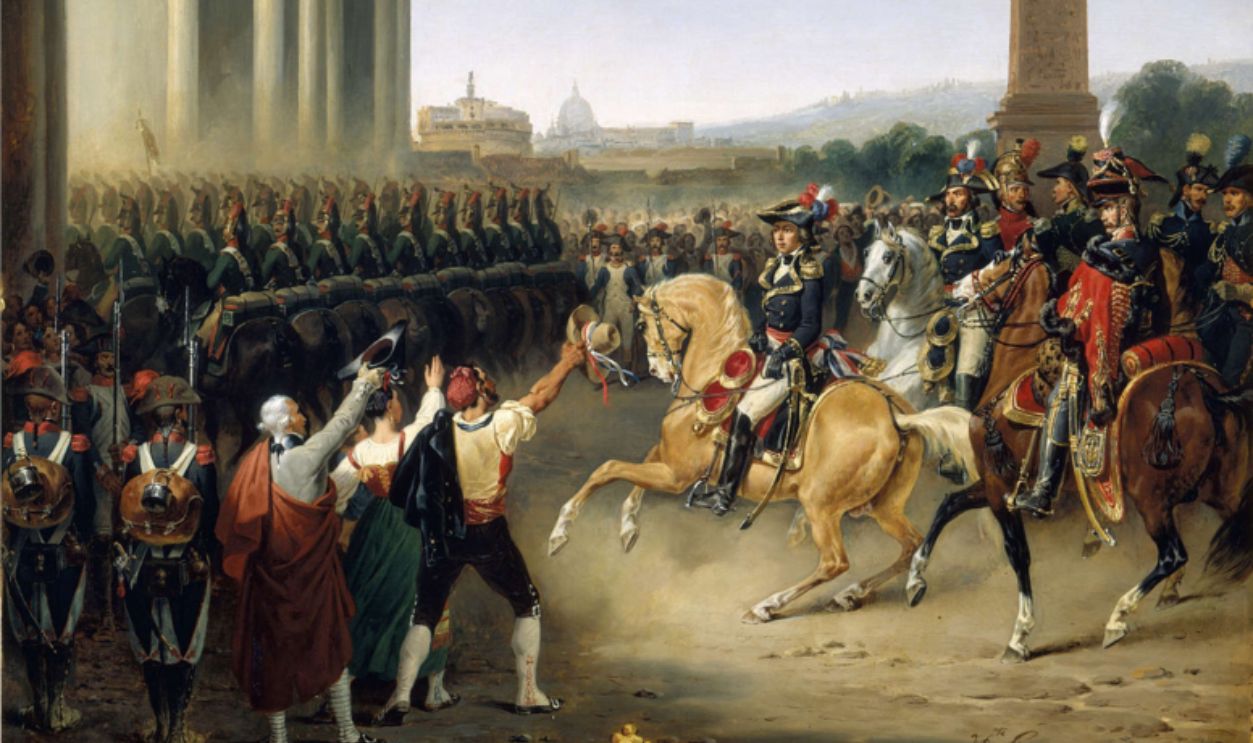 Hippolyte Lecomte, Wikimedia Commons
Hippolyte Lecomte, Wikimedia Commons
Europe's Response To The French Revolution
When the other European countries, where kings and nobles were in charge, heard about the French Revolution, they were very angry. They teamed up with Britain, the Roman Empire, and other countries to fight and defeat France.
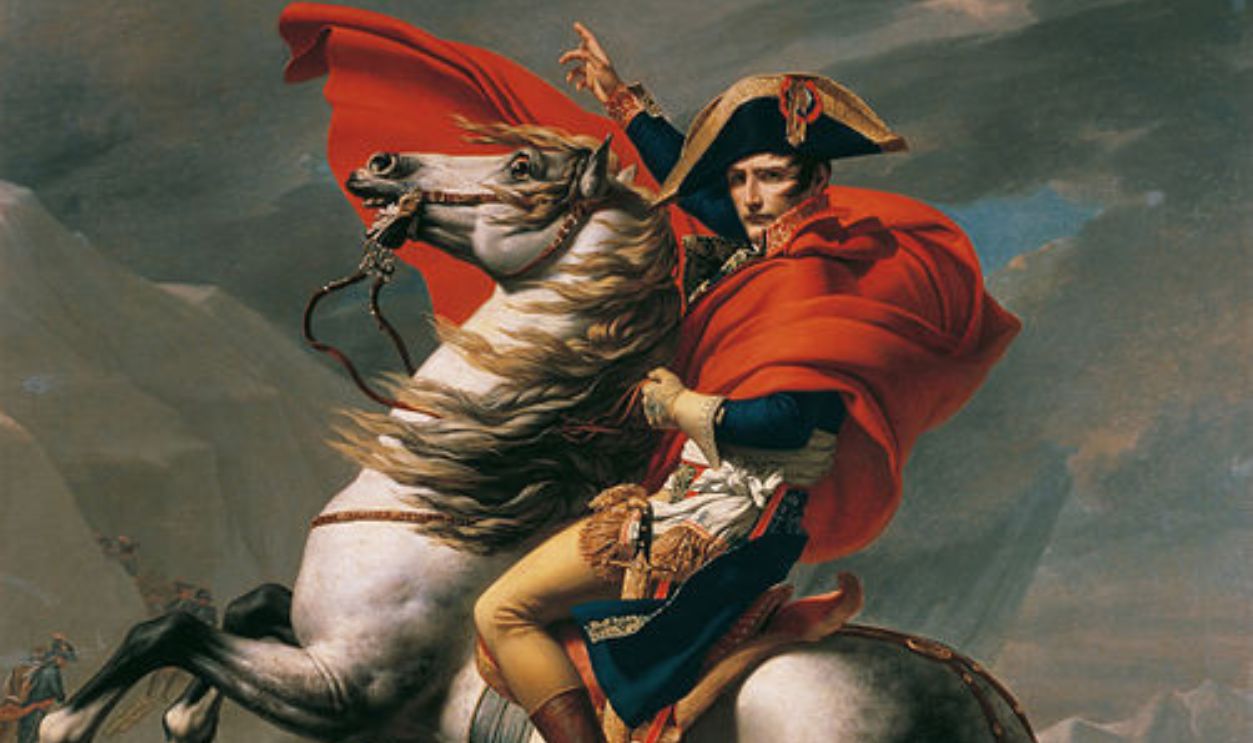 Jacques-Louis David, Wikimedia Commons
Jacques-Louis David, Wikimedia Commons
Seizes His Chance
With almost half of Europe fighting against France, many French people were worried and scared. But for Napoleon, it was a chance he had been waiting for. When France called for men to join the fight, he eagerly jumped at the opportunity and enlisted right away.
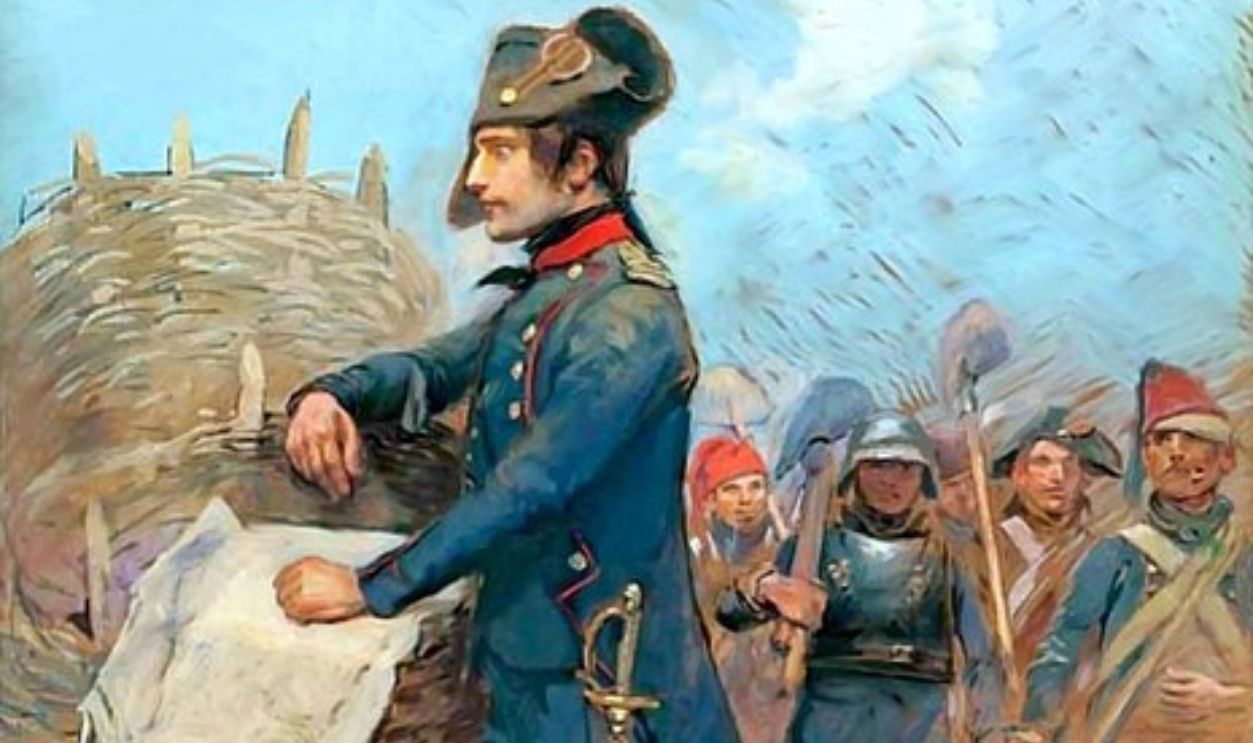 Édouard Detaille, Wikimedia Commons
Édouard Detaille, Wikimedia Commons
First Leadership Role
In 1793, Napoleon Bonaparte had his first big chance to show his leadership skills. The city was under threat from royalist rebels, who were getting support from British and Spanish ships. At only 24 years old, Napoleon was tasked with leading the fight to save the city.
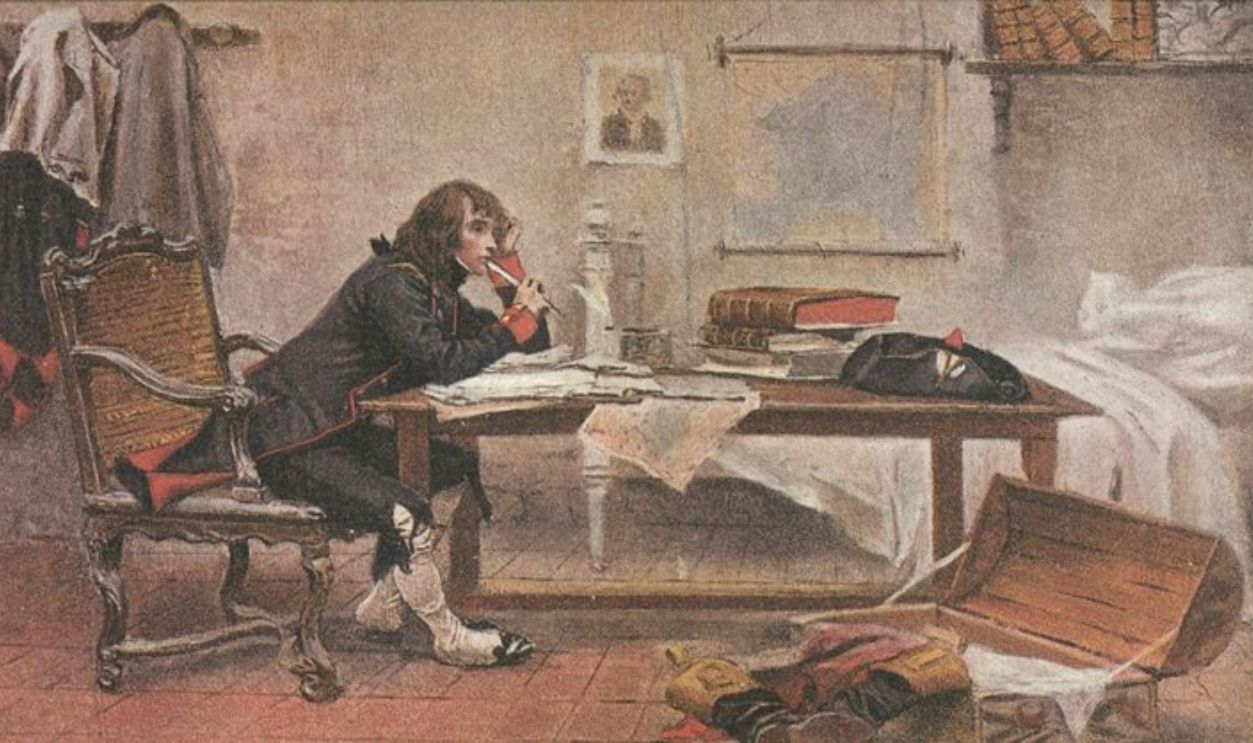 François Flameng, Wikimedia Commons
François Flameng, Wikimedia Commons
A Bold Plan
Napoleon quickly came up with a bold plan to liberate the city. He decided to start a surprise attack on the hilltop fort during the night. He aimed his cannons at the enemy ships that were blocking the harbor. His daring strategy worked, and he successfully led the attack.
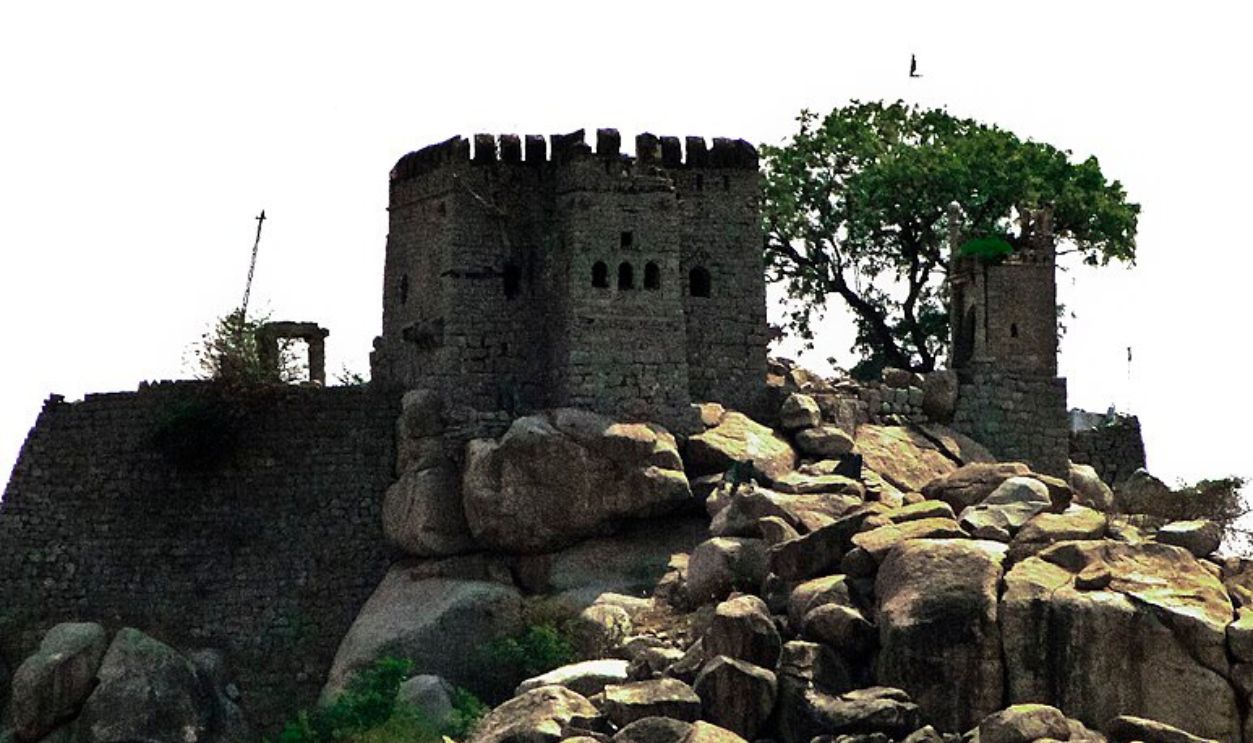 Tanzeelahad, CC BY-SA 3.0, Wikimedia Commons
Tanzeelahad, CC BY-SA 3.0, Wikimedia Commons
Early Career Challenges
Napoleon was promoted to brigadier general. His first task was to stop a royalist rebellion in western France, but he felt it was beneath him and didn't take on the job. This decision led to a temporary setback in his career, as he was removed from his command role.
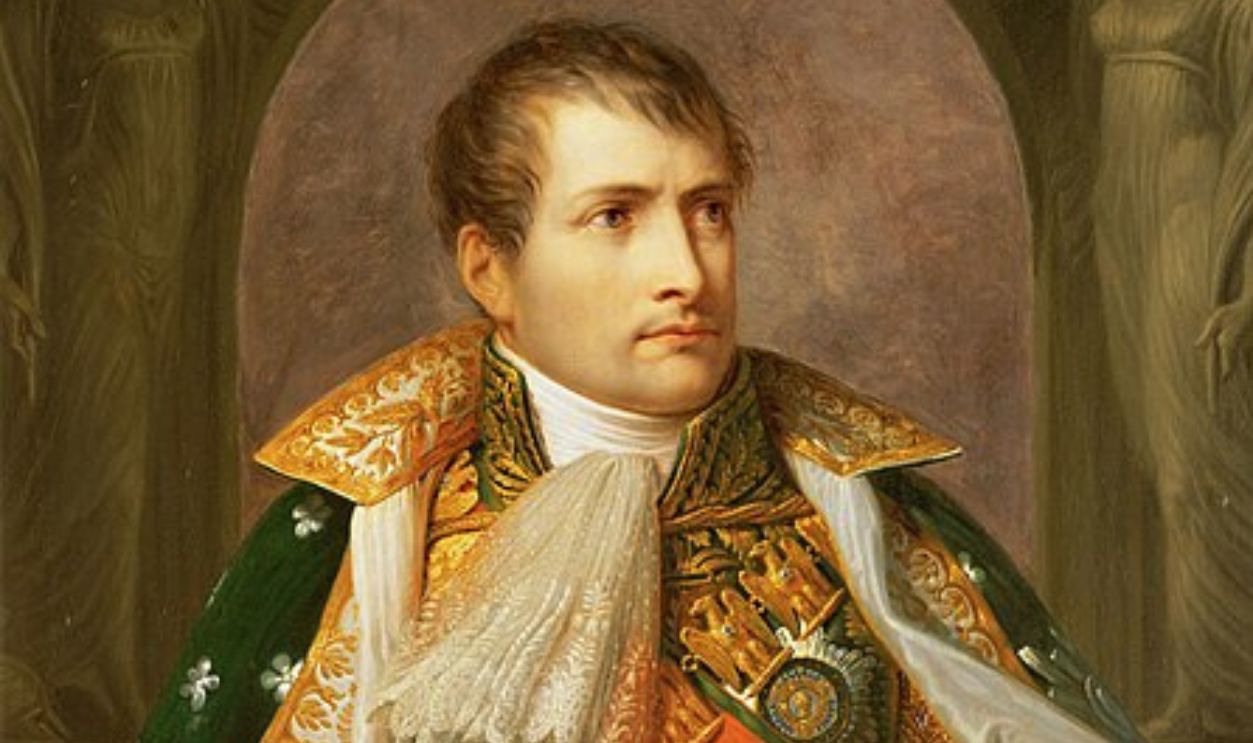 Andrea Appiani, Wikimedia Commons
Andrea Appiani, Wikimedia Commons
Surprising Choices
He almost left his military career to become a writer. That's right, THE Napoleon was thinking about writing books instead of leading personnel. This would have changed his life completely. But he decided to stay in the service. For worse or better? You decide.
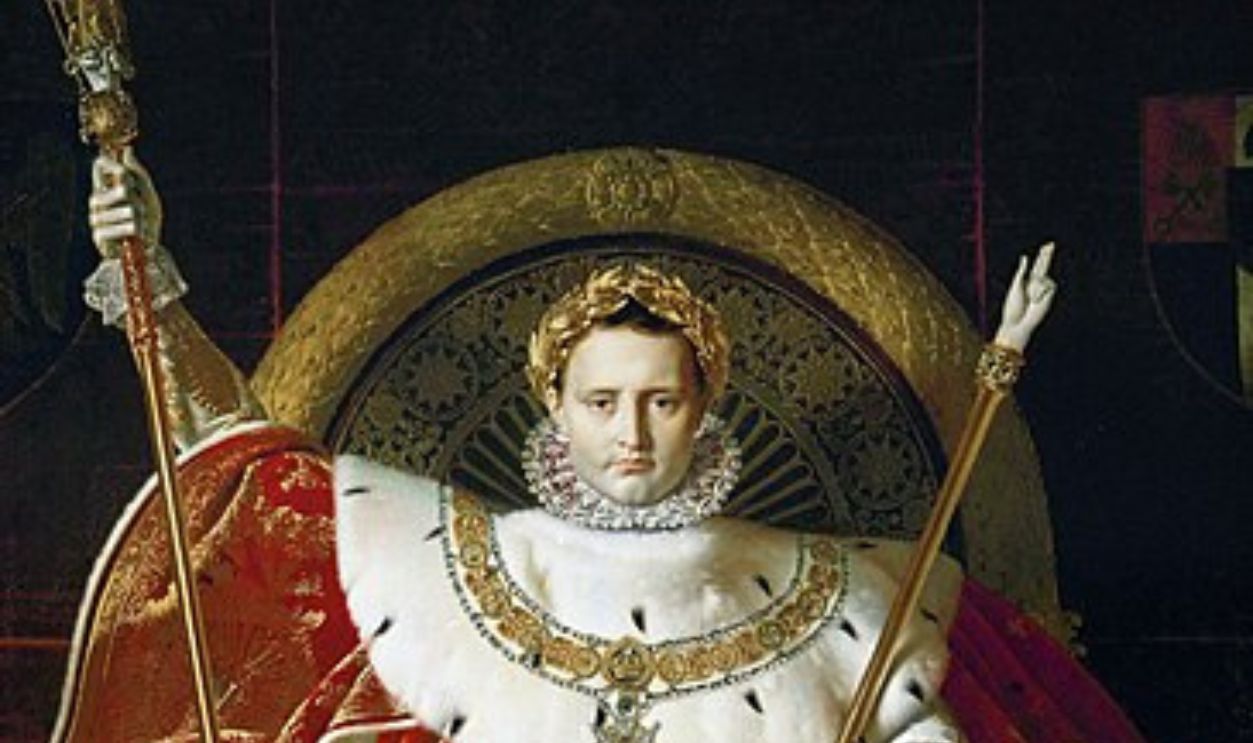 Jean-Auguste-Dominique Ingres, Wikimedia Commons
Jean-Auguste-Dominique Ingres, Wikimedia Commons
Attack On Paris
In 1795, Paris was in danger from Royalist forces who wanted to bring back the old monarchy. They were against the revolutionary government that had taken over during the French Revolution. The Royalists got help from British and Spanish ships and wanted to replace the new government with the old.
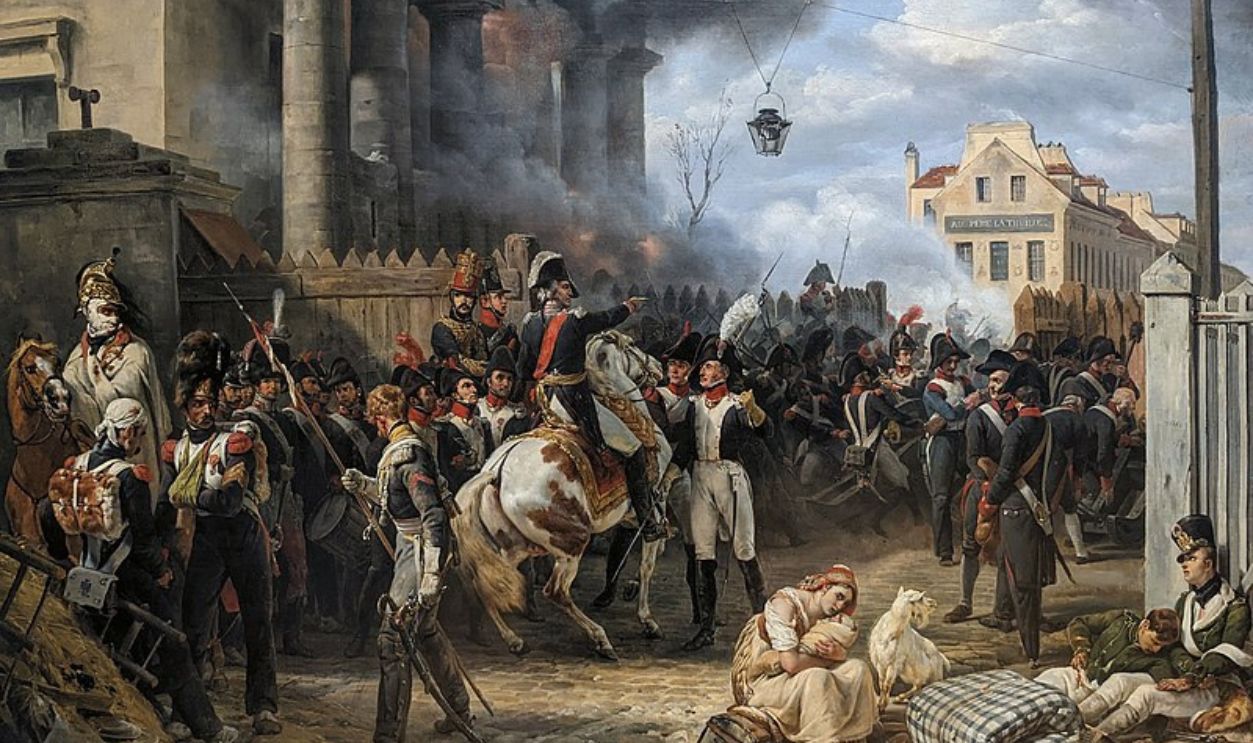 Horace Vernet, Wikimedia Commons
Horace Vernet, Wikimedia Commons
The Odds And The Situation
The Republicans in Paris were greatly outnumbered. There were only 5,000 of them, while the royalist forces had 25,000 individuals. This made the Republicans outnumbered five to one. Many other generals fled the city, leaving the Republicans in a tough spot.
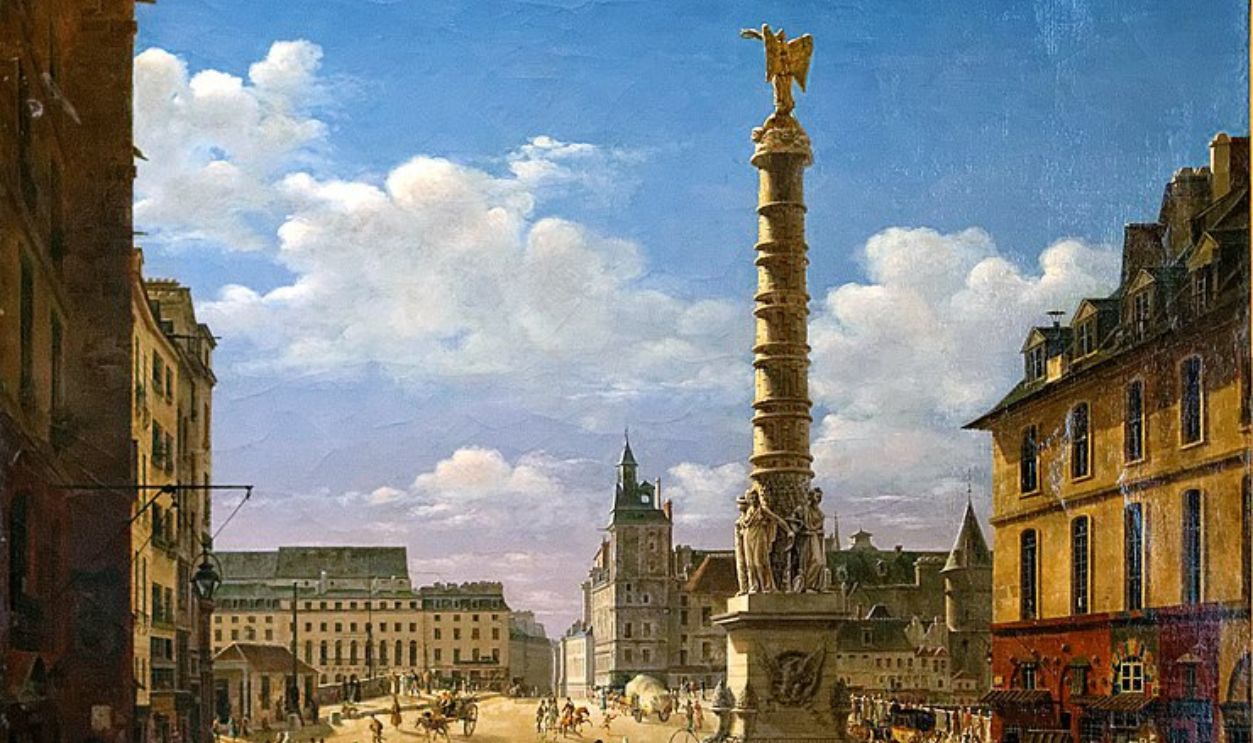 Musée Carnavalet, Wikimedia Commons
Musée Carnavalet, Wikimedia Commons
Quick Thinking
Napoleon was asked to join and agreed, but only if he could lead. He had to plan and prepare quickly. He directed his men to key streets around the palace, where the new government was based, and placed cannons in important spots to create dangerous zones for the enemy.
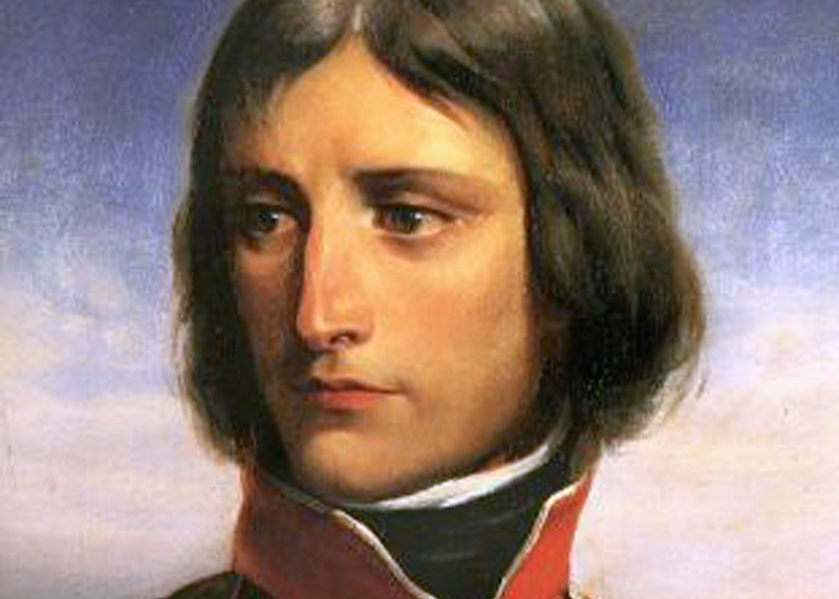 Henri Félix Emmanuel Philippoteaux, Wikimedia Commons
Henri Félix Emmanuel Philippoteaux, Wikimedia Commons
Bold Defense
The royalists started their attack at dawn. When the battle began, Napoleon was right in the middle of it, staying on the front line. He quickly set up strong defenses that helped him defeat the larger royalist army. Notably, he lost fewer than 100 men.
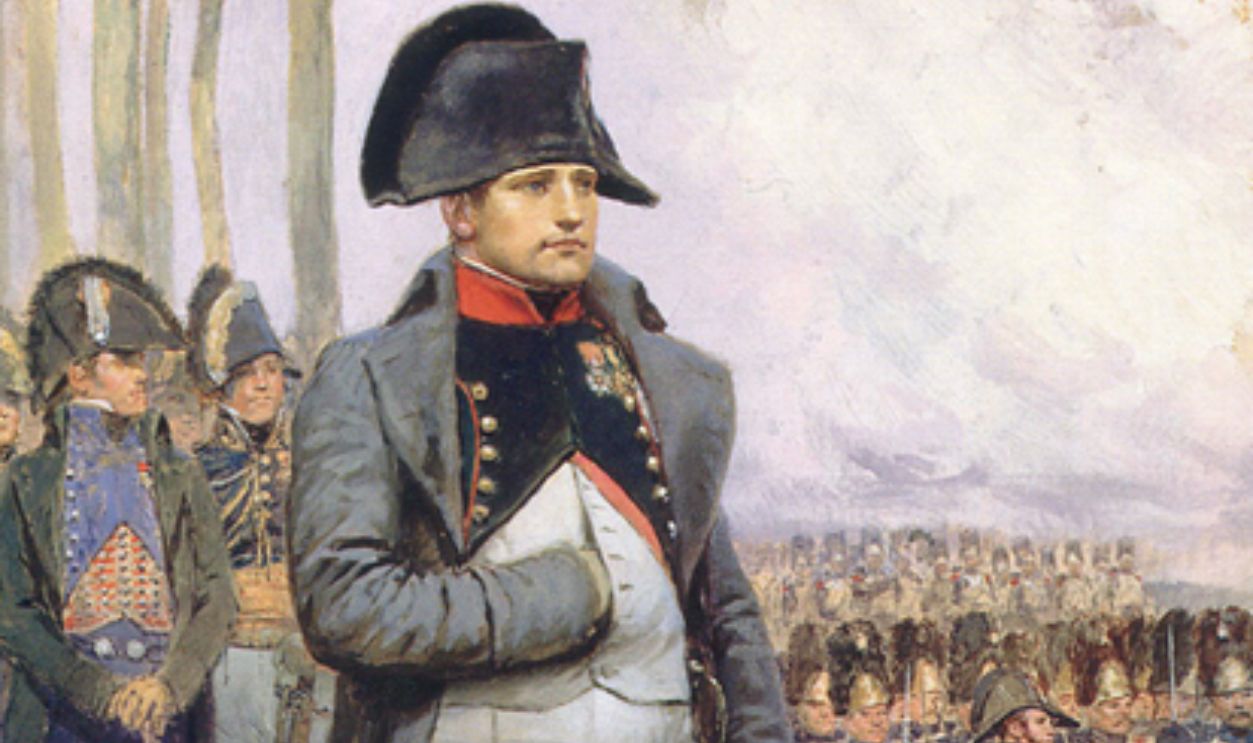 Edouard Detaille, Wikimedia Commons
Edouard Detaille, Wikimedia Commons
Takes Charge
At just 26 years old, Napoleon was promoted to General-in-Chief and given full command of the French army. Of the 13 French field armies, his was the weakest. His men were underfed and poorly equipped. Morale was very low; out of his 63,000 personnel, only 38,000 were considered "ready."
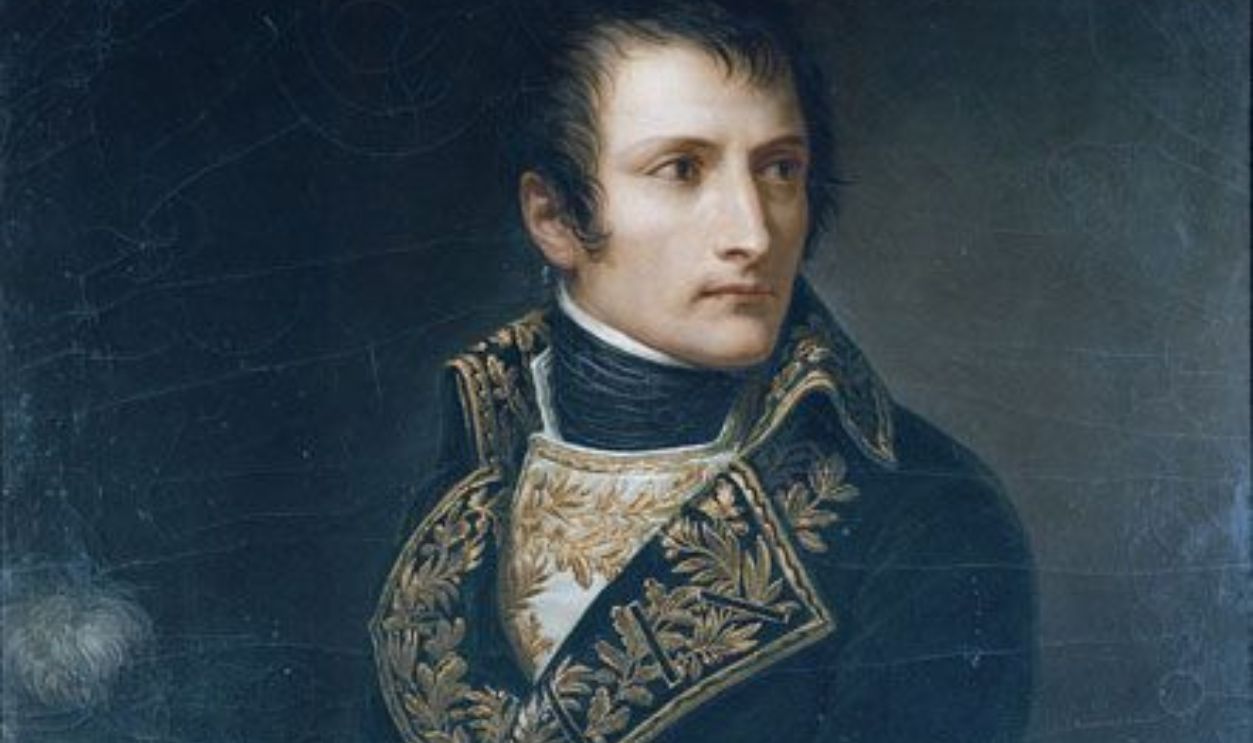 Andrea Appiani, Wikimedia Commons
Andrea Appiani, Wikimedia Commons
First Victory
Despite his army's weak condition, he took the offensive and defeated a combined Austrian and Genoese-Sardinian force 30 miles west. By the end of the battle, 3,500 enemy combatants were lost, while Napoleon's forces only lost 200.
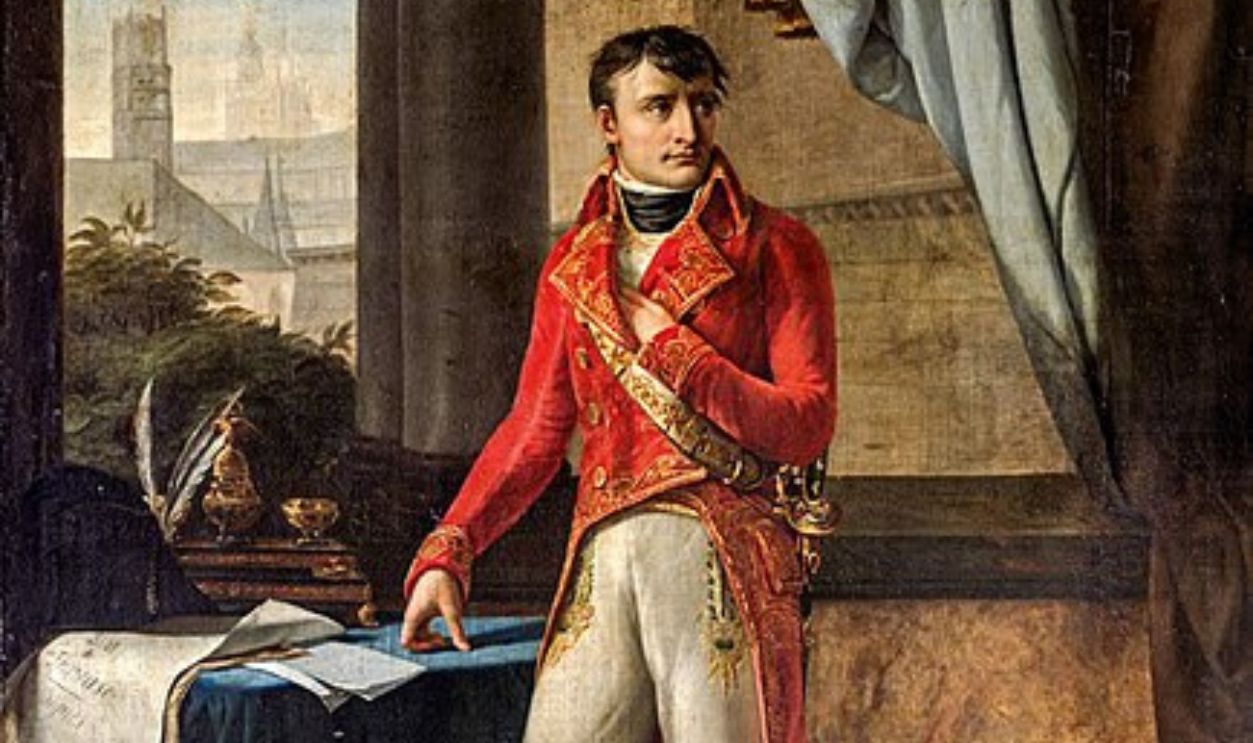 Marie-Guillemine Benoist, Wikimedia Commons
Marie-Guillemine Benoist, Wikimedia Commons
Winning Streak
Over the next 12 months, Napoleon went on a winning spree, winning 19 out of 21 battles. The coalition forces were badly beaten and had to call for peace. They gave up control of northern Italy to the French. This ended the War of the First Coalition.
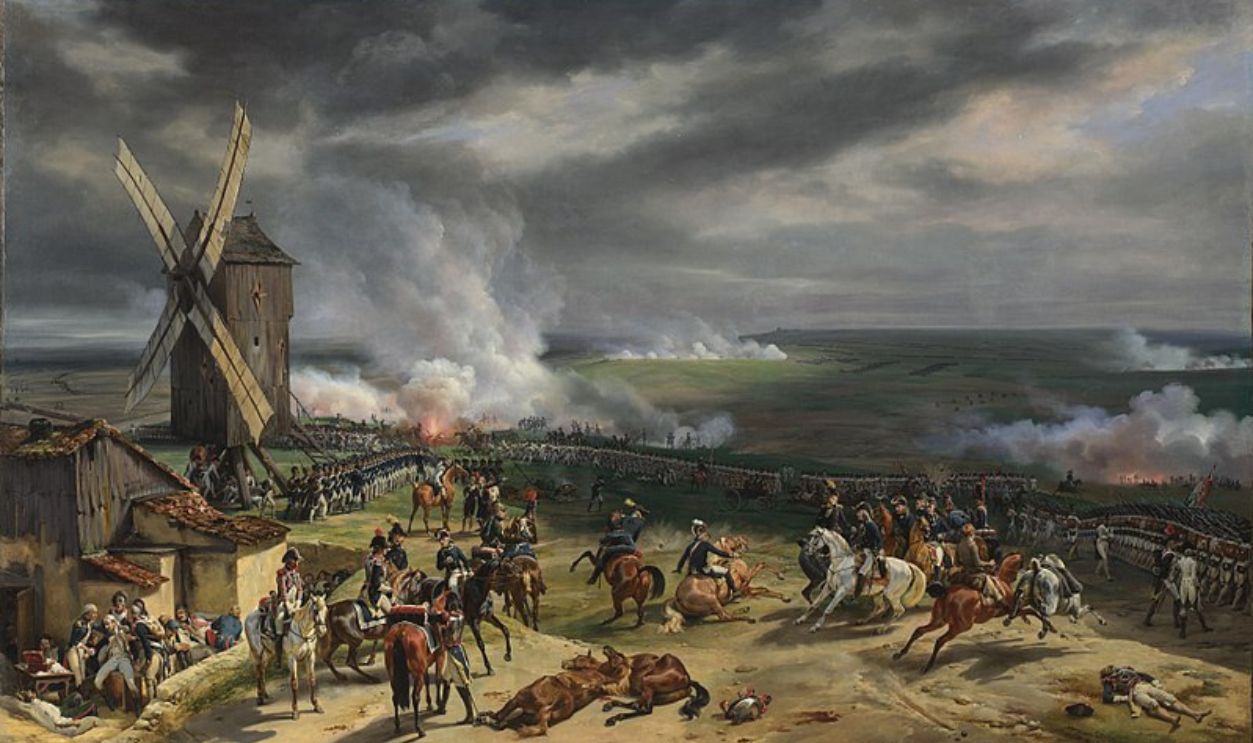 Horace Vernet, Wikimedia Commons
Horace Vernet, Wikimedia Commons
Ambitions And The Government's Strategy
There were rumors that Napoleon had his eyes on taking over the government. So, when he suggested invading Egypt, the idea was approved immediately. Sending him to Egypt for a year seemed like a smart move for the government. They were protecting themselves by keeping him busy and far away.
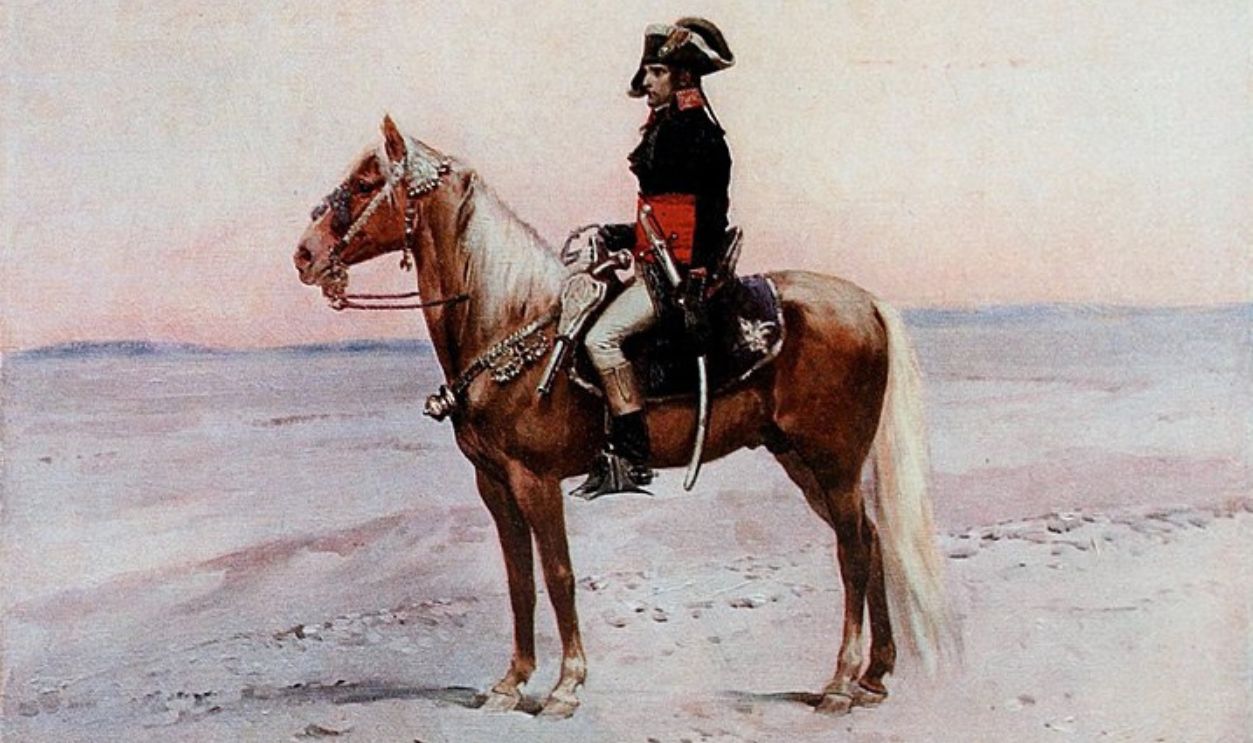 Edouard Detaille, Wikimedia Commons
Edouard Detaille, Wikimedia Commons
Napoleon's Egyptian Expedition
On May 19, 1798, Napoleon and about 30,000 men set sail for Egypt. They landed in 1798 and quickly captured the city of Alexandria, then moved on to Cairo. Napoleon won, losing only 289 men, while Cairo lost more than 10,000. Egypt then fell under French control.
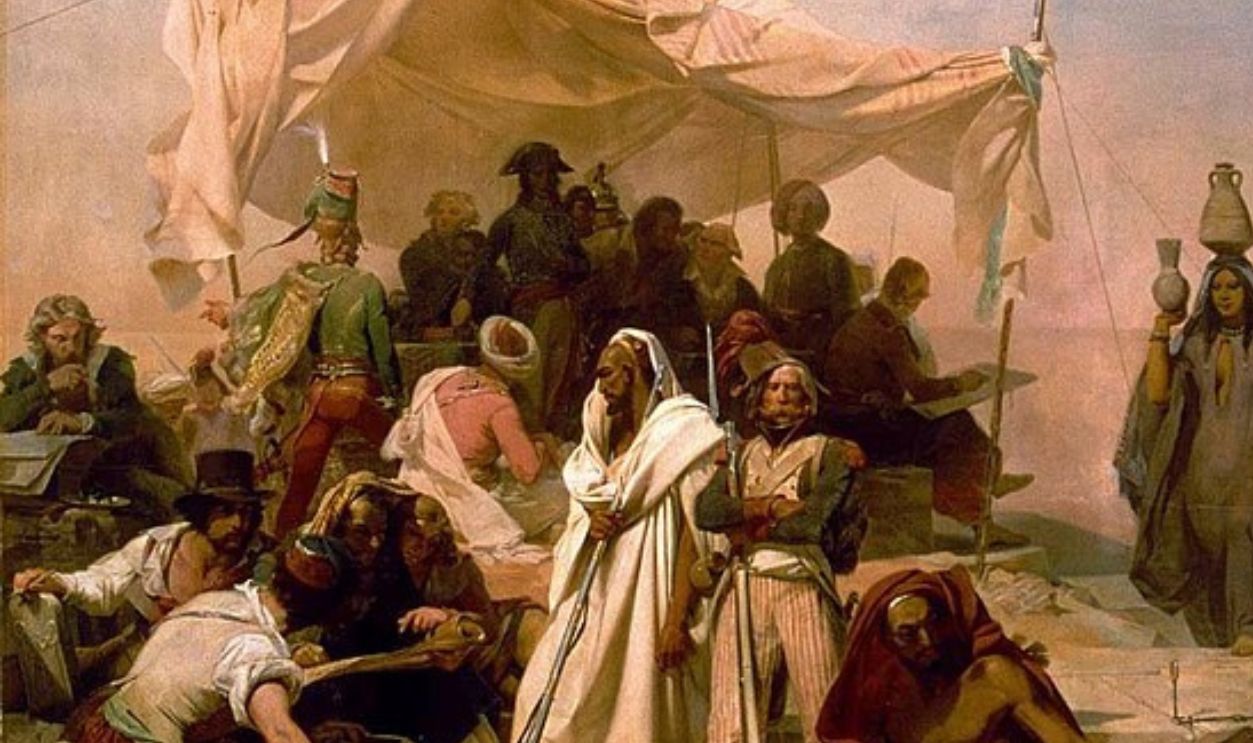 Leon Cogniet, Wikimedia Commons
Leon Cogniet, Wikimedia Commons
Accidental Discoveries
While Napoleon was in Egypt, his team accidentally found the Rosetta Stone. This stone was very important because it helped people understand old Egyptian writing. Because of this finding, historians and archaeologists could learn more about ancient Egypt.
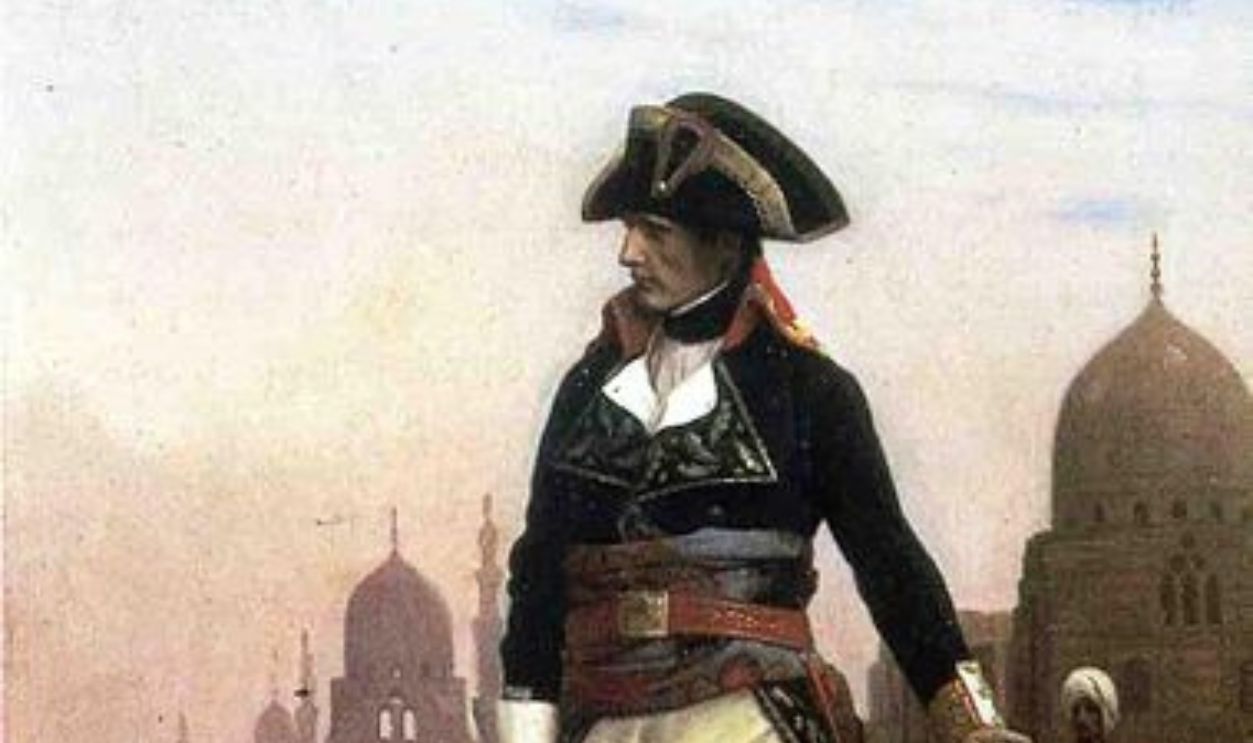 Jean-Léon Gérôme, Wikimedia Commons
Jean-Léon Gérôme, Wikimedia Commons
Questionable Choices
An outbreak of bubonic plague claimed the lives of hundreds of his men, and the French army was eventually defeated. Seeing the situation was hopeless, Napoleon secretly left Egypt, leaving his remaining soldiers to deal with the tough conditions on their own.
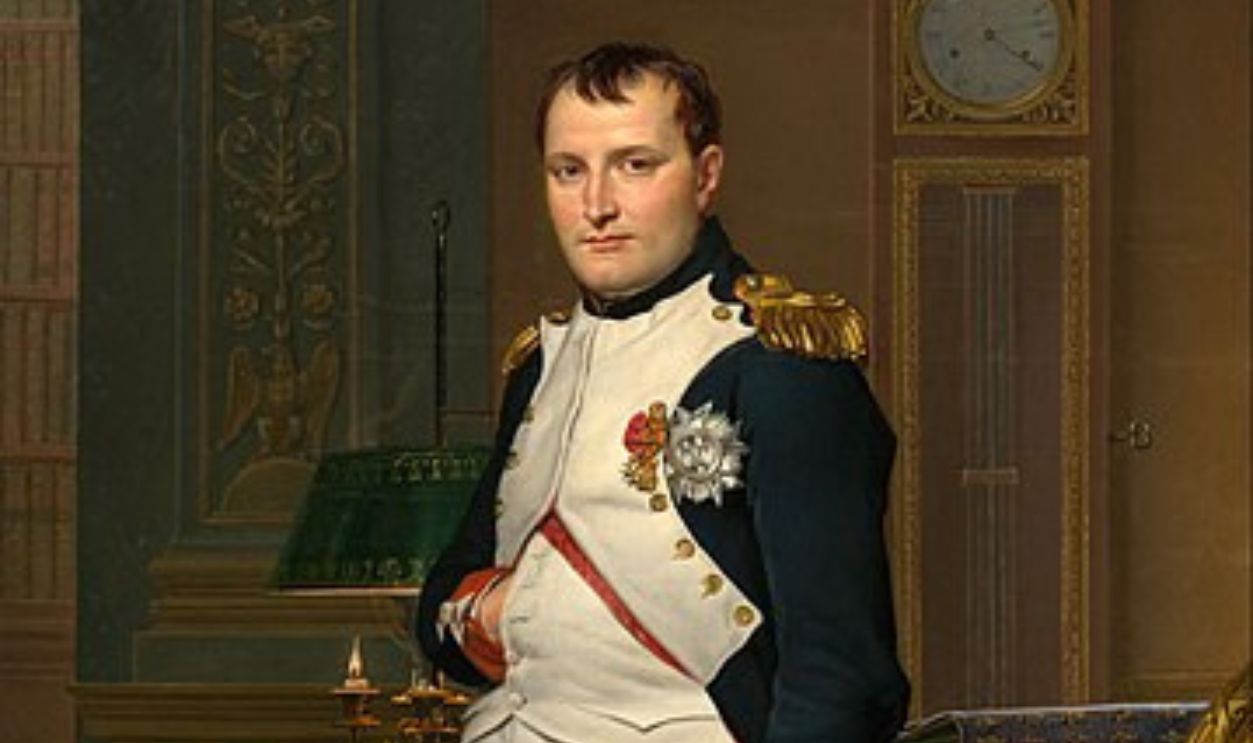 Jacques-Louis David, Wikimedia Commons
Jacques-Louis David, Wikimedia Commons
Europe's Response To Napoleon's Absence
When Europe learned that Napoleon was no longer in Egypt, they saw it as an opportunity. Many European countries joined forces against France in what became known as The War of the Second Coalition. They worked together to challenge the French and weaken their influence in Europe.
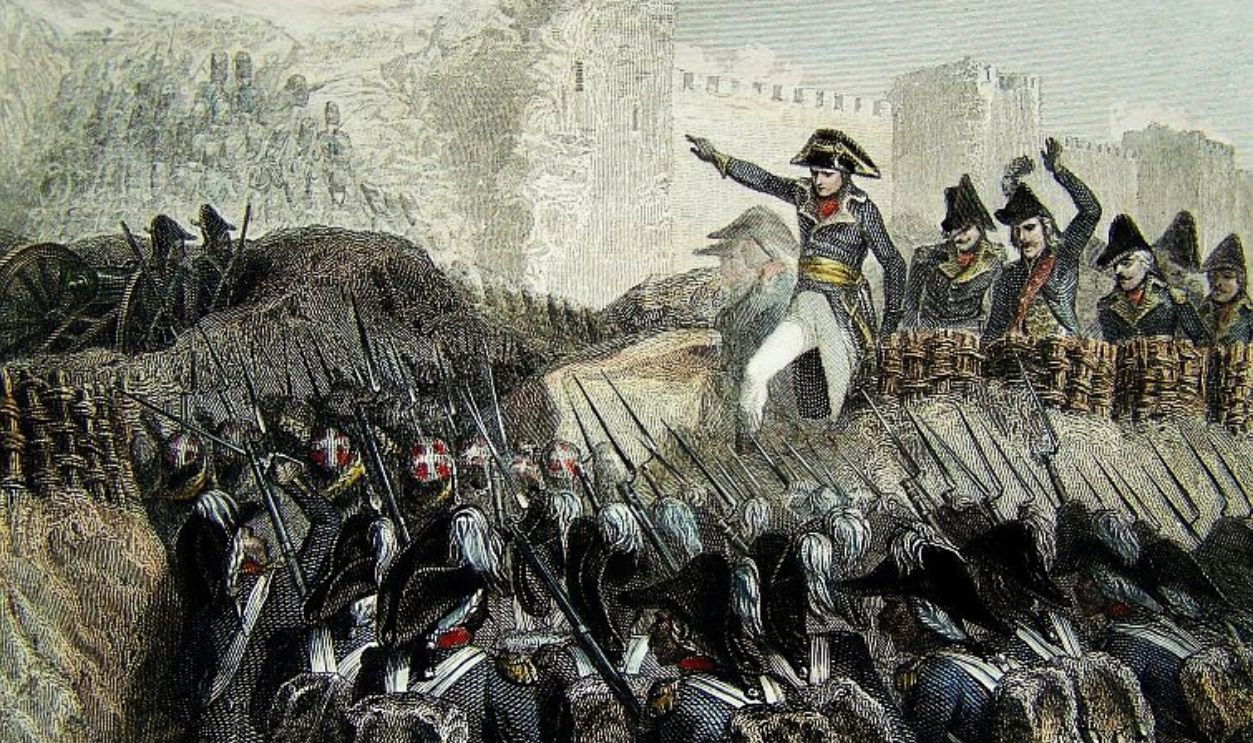 Unknown author, Wikimedia Commons
Unknown author, Wikimedia Commons
Napoleon's Return And Rise To Power
On October 9, 1799, Napoleon returned to France and quickly took action. He gathered his allies and staged a coup, overthrowing the existing French government. Napoleon then installed himself as the First Consul of France. With this move, he took full control according to his vision.
Dealing With The Second Coalition
Napoleon's first major task was to defeat the troublesome Second Coalition. He led the French forces to victory in the Battle of Marengo, which led to them taking control of Lombardy. After his success, even Britain, which had been a major opponent, agreed to stop fighting and make peace.
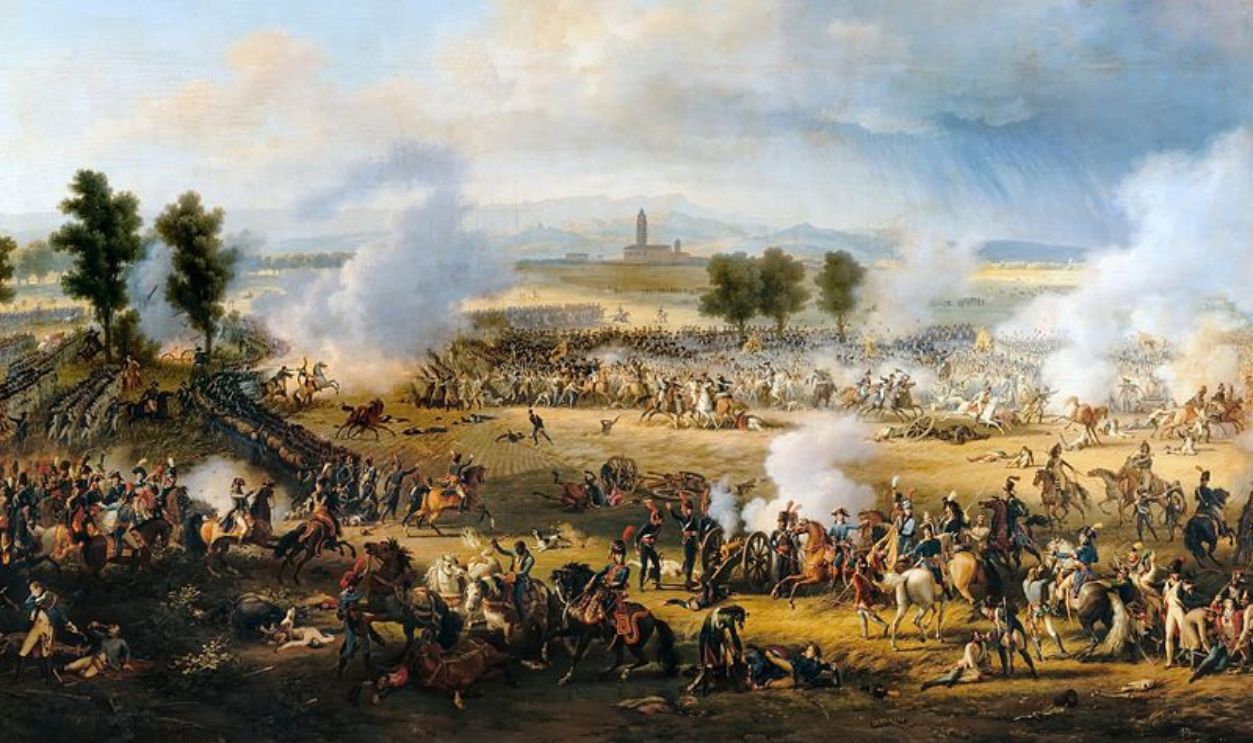 Baron Lejeune, Wikimedia Commons
Baron Lejeune, Wikimedia Commons
Reforming France
Set up the Napoleonic Code, which made civil laws clear and organized for the first time. Improved the school system by adding more schools and making them better. He also started the Bank of France, fixed the tax system, and helped France recover from the economic damage of the Revolution.
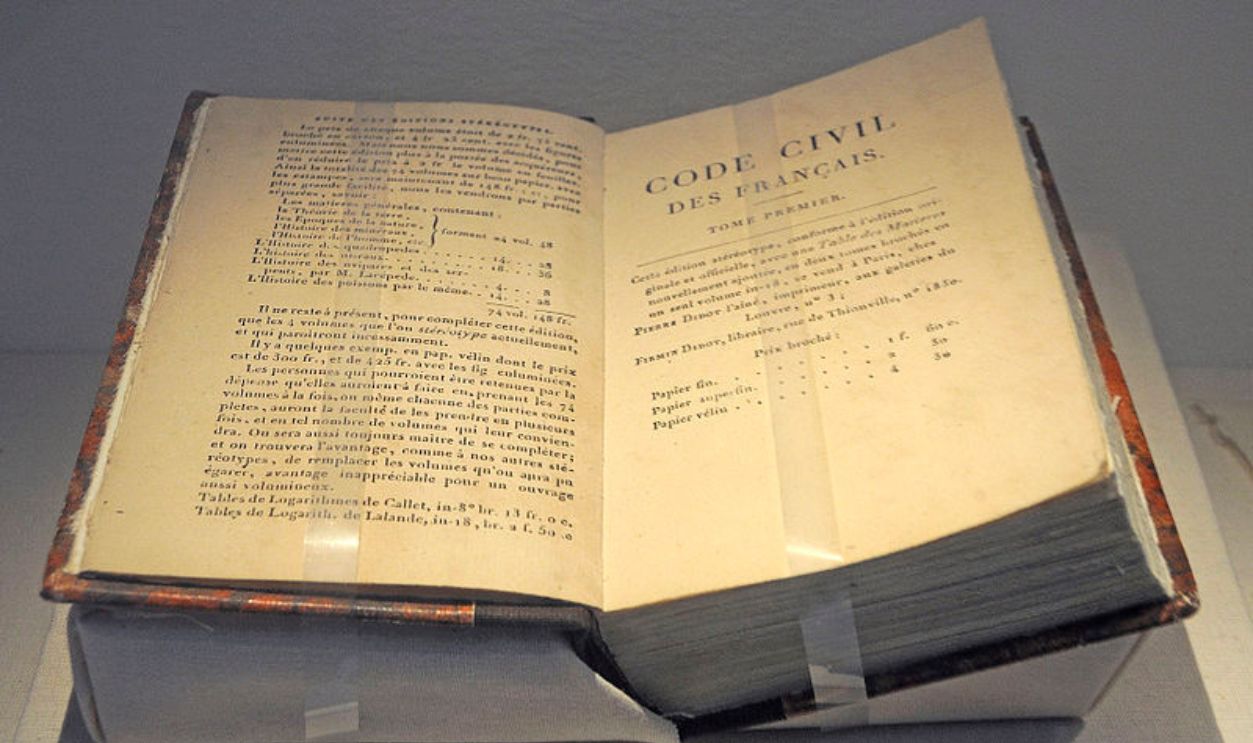 DerHexer, CC BY-SA 4.0, Wikimedia Commons
DerHexer, CC BY-SA 4.0, Wikimedia Commons
The Dark Side
Many of Napoleon's changes only helped half of the French people. Women lost the rights they had gained. He also put his family members and close friends in powerful jobs. Napoleon quickly brought back slavery in the French Caribbean to help with his plans for colonization.
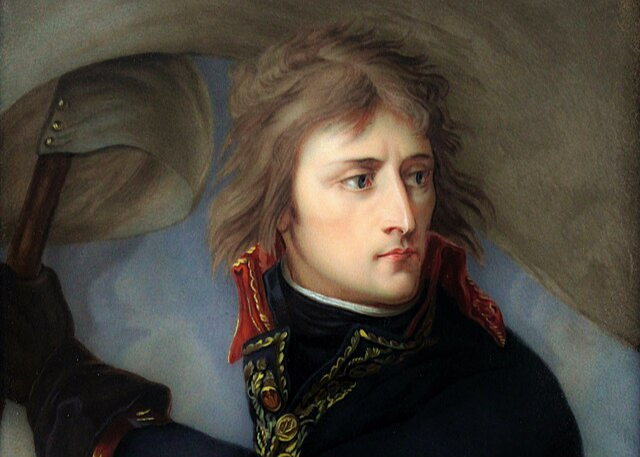 Adélaïde-Félicité Hoguer, Wikimedia Commons
Adélaïde-Félicité Hoguer, Wikimedia Commons
New Title And Land Deal
In 1802, Napoleon changed his title from First Consul to First Consul for Life. He also made a huge land deal by selling over 800,000 square miles of land to the U.S. This remains one of the largest real estate deals in history.
Emperor of France
Wanting to rule forever, he promoted himself again. In December 1804, in one of the most lavish ceremonies ever seen, Napoleon crowned himself Emperor of France. This new title didn't give him more power; it meant he could pass the title to his son after he was no longer alive.
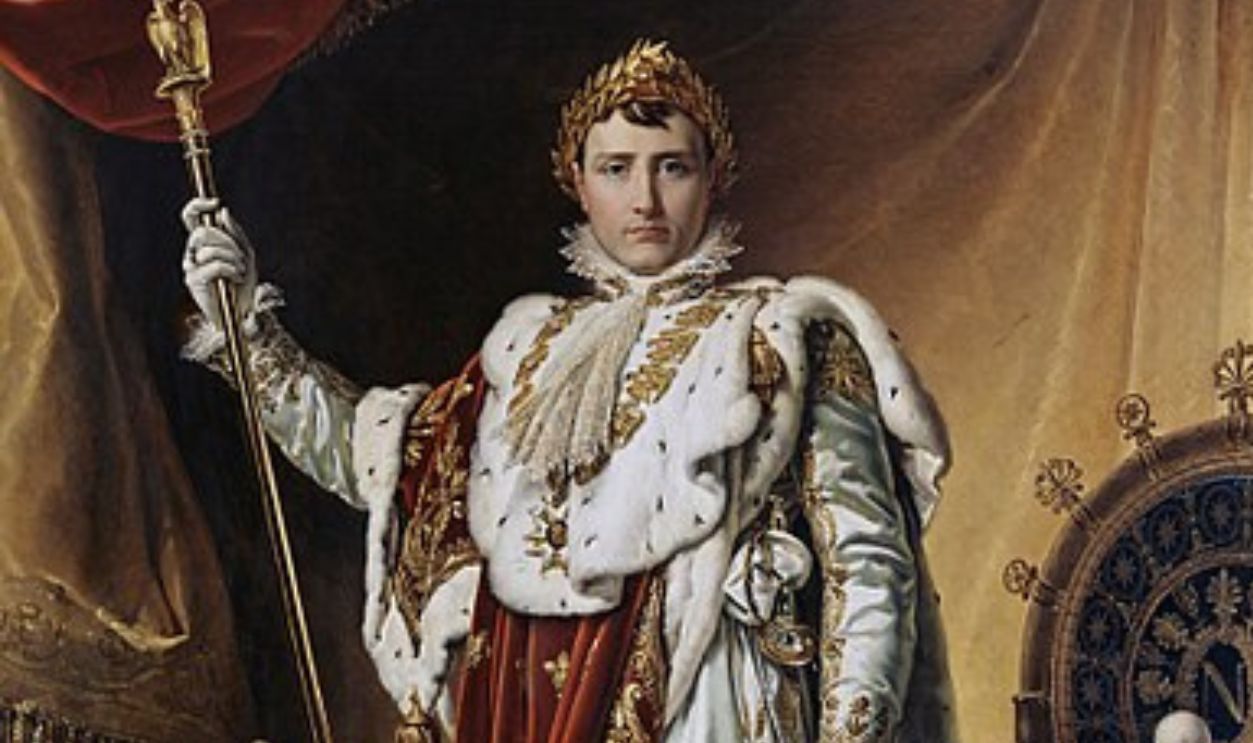 François Gérard, Wikimedia Commons
François Gérard, Wikimedia Commons
Dominating The Coalitions
In the conflict with the Third, Fourth, and Fifth Coalitions, Napoleon defeated many European countries. He introduced the idea of mass conscription, which allowed him to recruit personnel from across his growing empire. At its peak, his force had 600,000 soldiers.
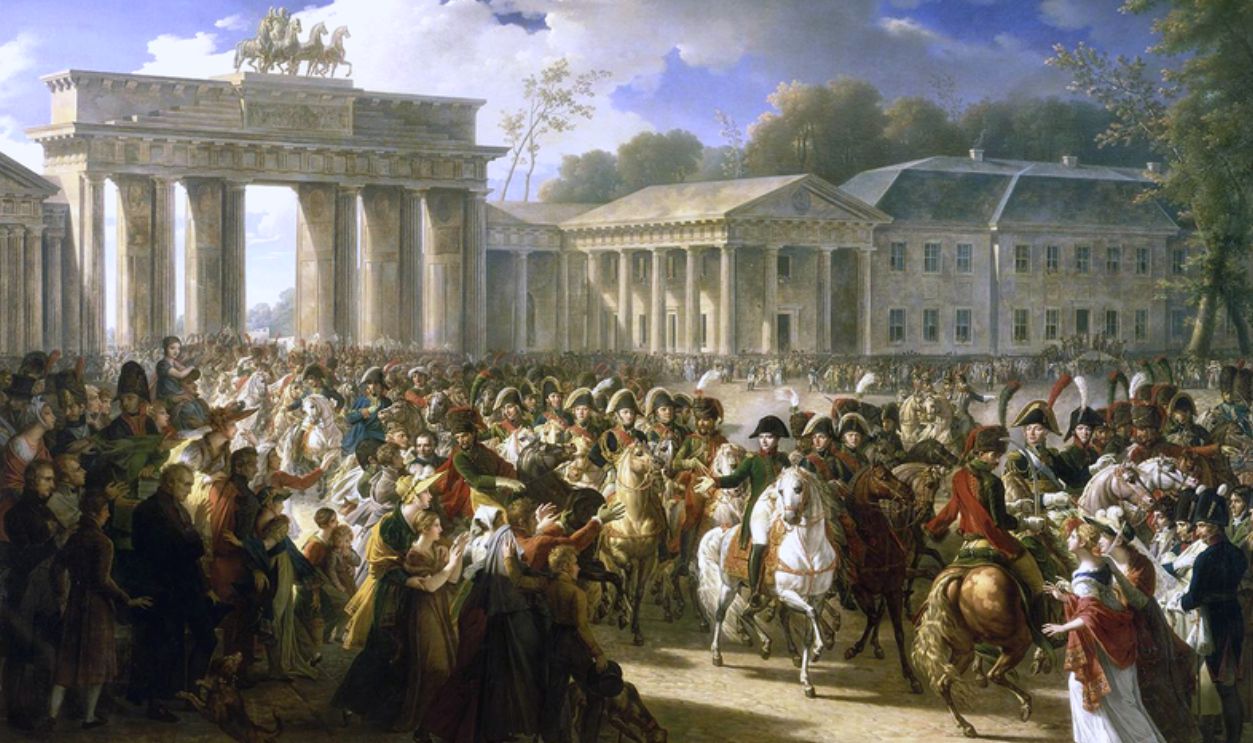 Charles Meynier, Wikimedia Commons
Charles Meynier, Wikimedia Commons
Innovations
Napoleon invented the idea of corps, splitting his army into smaller units that could act on their own. This made his army faster and more flexible than others. He ended the Holy Roman Empire, which had lasted over a thousand years, and defeated powerful enemies like the Austrians.
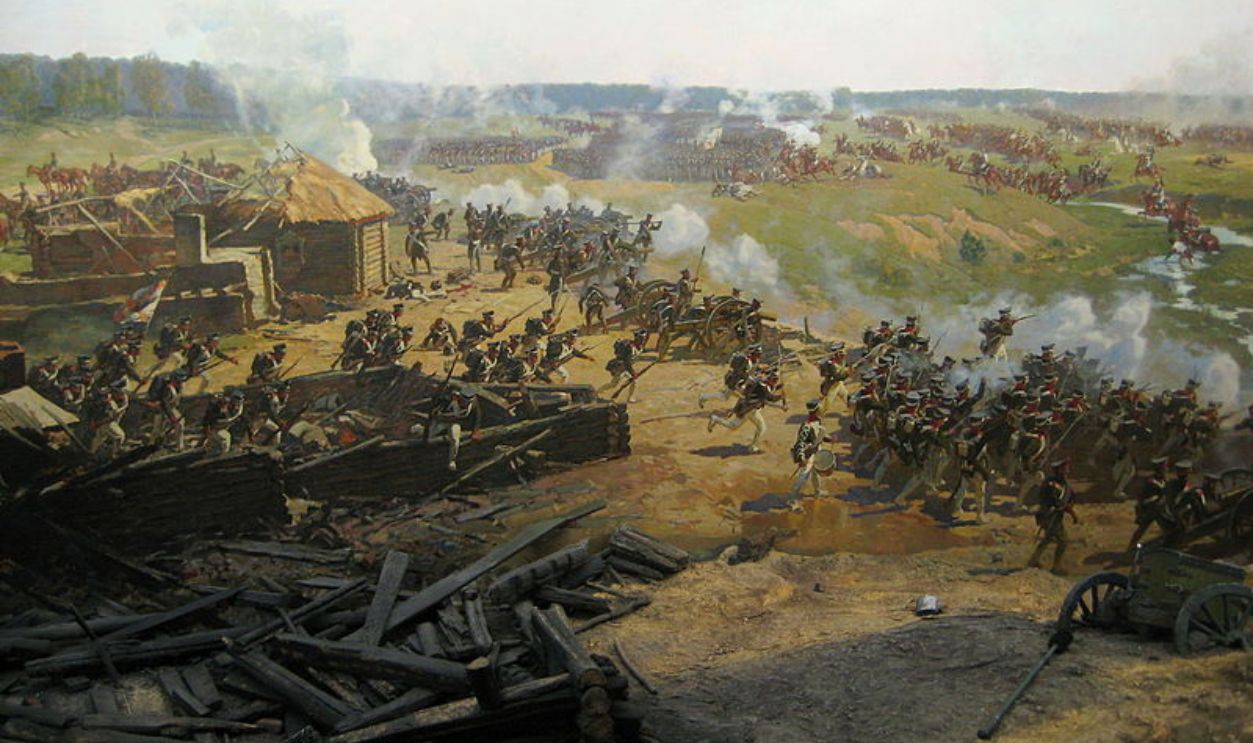 Franz Roubaud, Wikimedia Commons
Franz Roubaud, Wikimedia Commons
Invasion Of Russia
On June 24, 1812, half a million French personnel marched into Russia. The Russians retreated, burning everything that the French might use as they fell back. This strategy put great pressure on Napoleon. Although the French managed to capture Moscow, they suffered a huge loss.
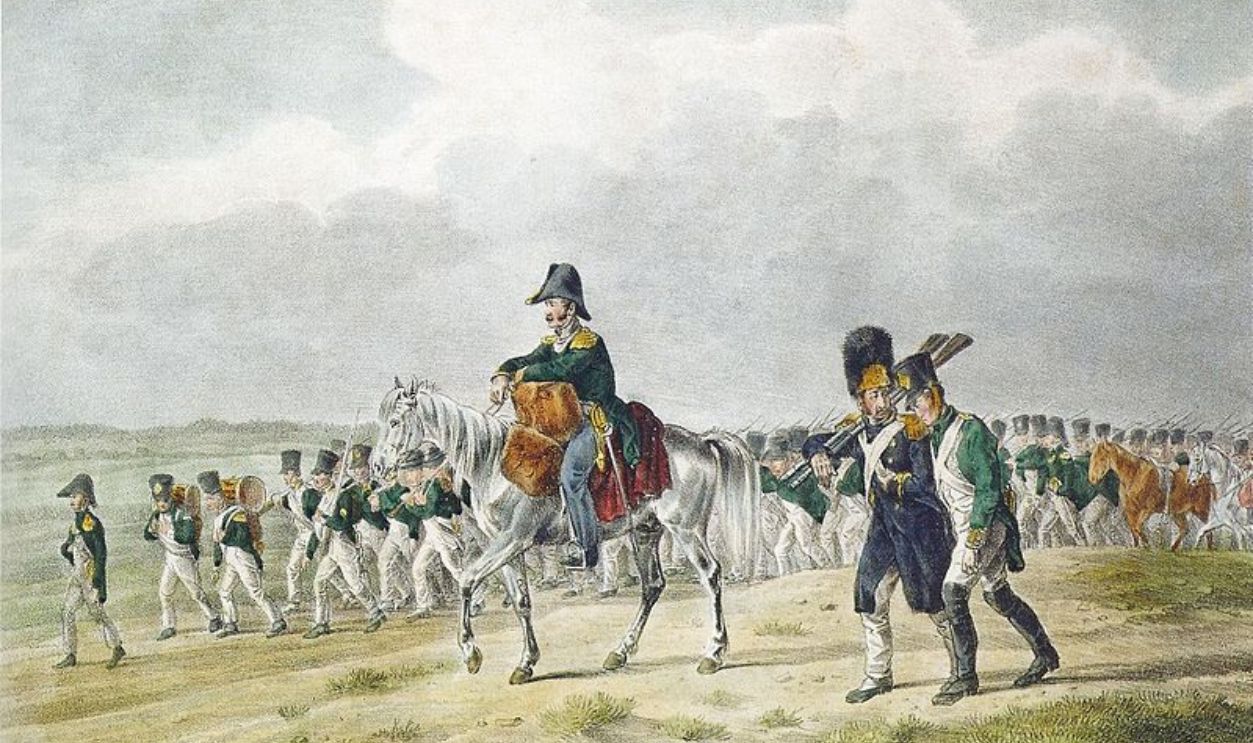 Albert Adam, Wikimedia Commons
Albert Adam, Wikimedia Commons
The Cost Of Winter
Napoleon's decision to march into Russia during the summer proved disastrous as winter set in. Without enough supplies, tens of thousands of French men perished from the cold, starvation, or disease. Out of the 500,000 men who entered Russia in June 1812, only 40,000 made it out alive.
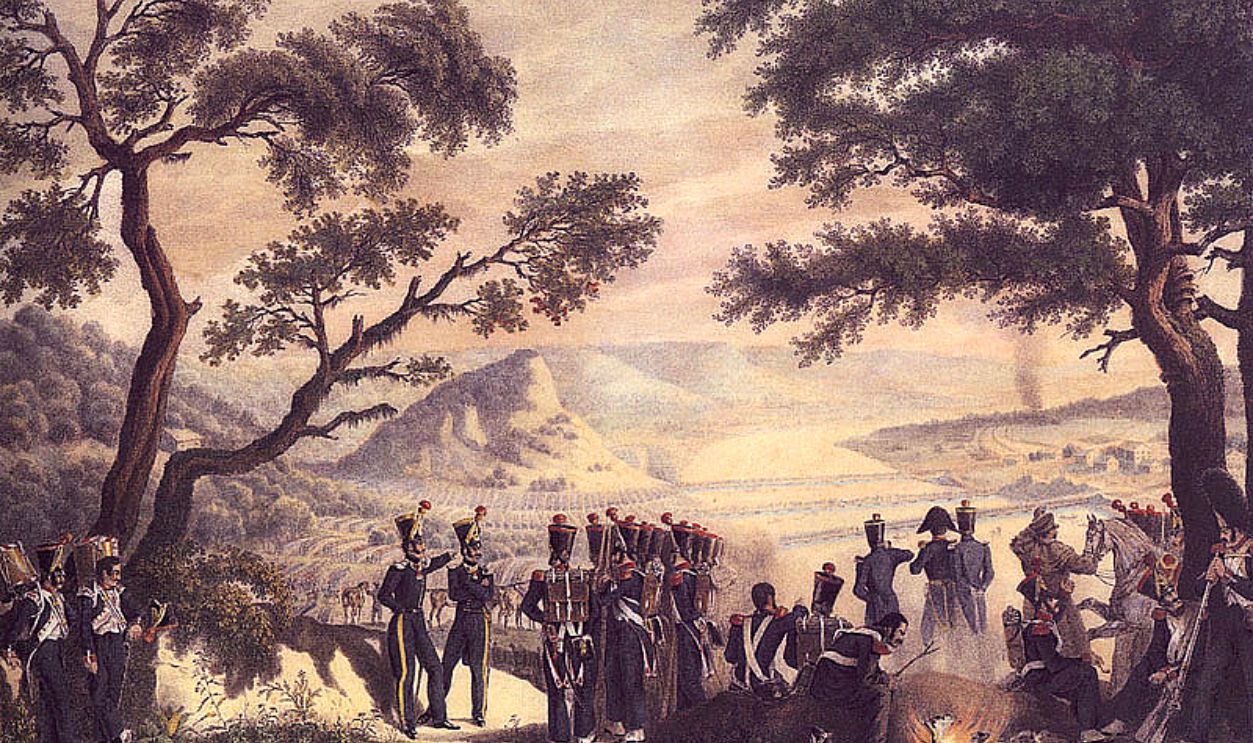 Christian Wilhelm, Wikimedia Commons
Christian Wilhelm, Wikimedia Commons
Battle of Leipzig
Europe had had enough of Napoleon, leading to the formation of the Sixth Coalition, which was formed to stop him. Countries like Prussia, Russia, Spain, Portugal, Sweden, the United Kingdom, and smaller states united. Attacks from multiple fronts eventually led to his defeat at the Battle of Leipzig in 1813.
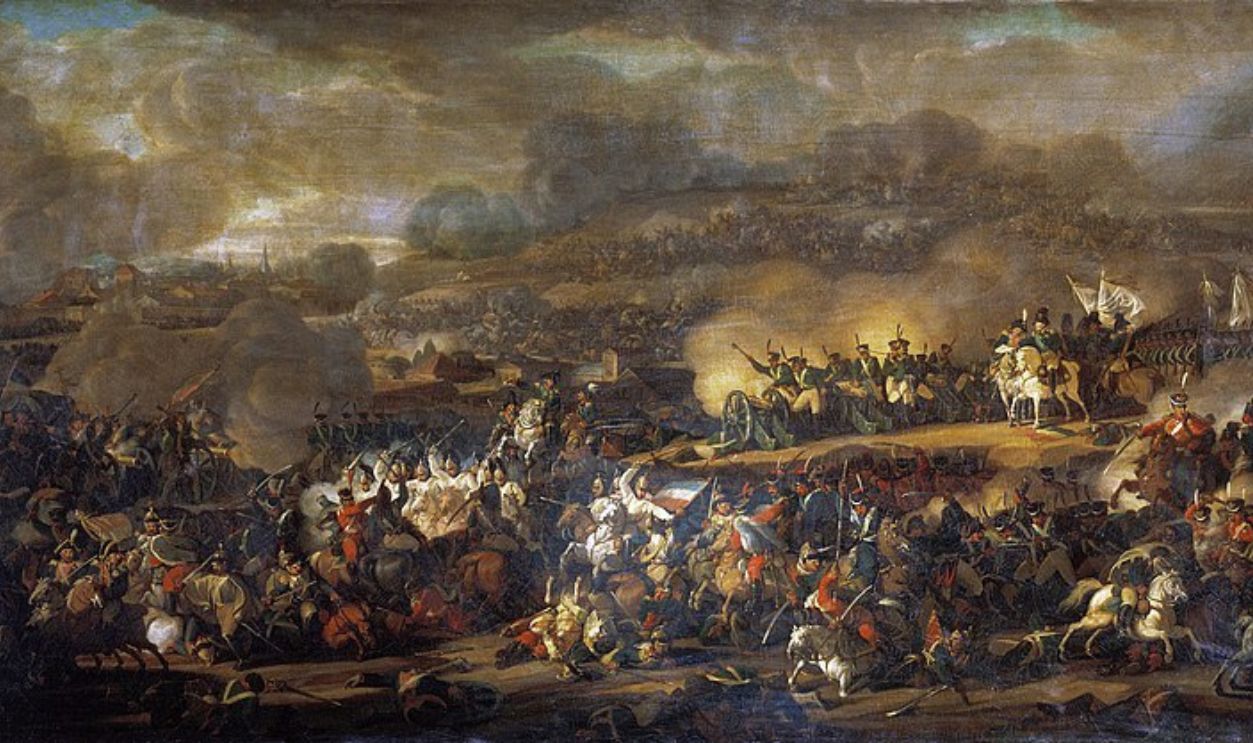 Vladimir Moshkov, Wikimedia Commons
Vladimir Moshkov, Wikimedia Commons
Forced To Abdicate And Exiled To Elba
Napoleon was forced to give up his power, and Louis XVIII, the brother of the previous king, took over. As punishment, Napoleon was exiled to the island of Elba, off the coast of Tuscany. To mock him, the Allies ironically named him the "Emperor of Elba."
Escape From Elba
In just nine months on the island of Elba, Napoleon built a small army and navy, invested in farming, started an iron mine, and improved the island's laws and education. With only 700 men, he escaped and landed in France on March 1, 1815.
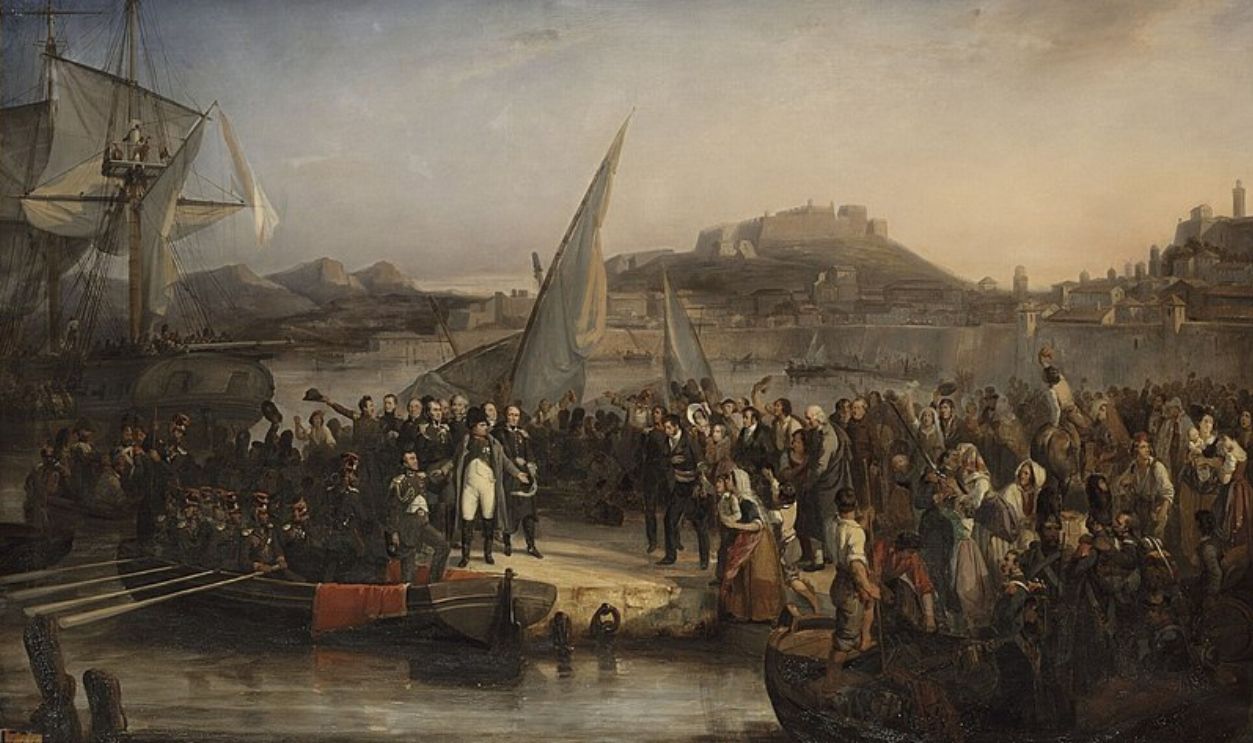 Joseph Beaume, Wikimedia Commons
Joseph Beaume, Wikimedia Commons
Triumphant Return
The new king sent an army to stop Napoleon, but they switched sides when the personnel saw their old leader. The king sent a bigger army, but they also joined Napoleon. The king fled to Belgium, and on March 20, 1815, Napoleon marched back into Paris, taking control once again.
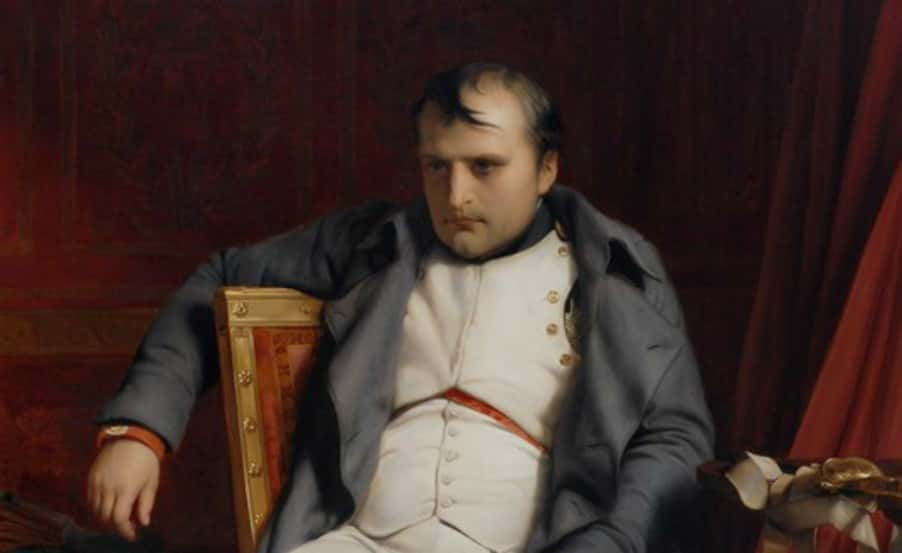 Paul Delaroche, Wikimedia Commons
Paul Delaroche, Wikimedia Commons
The Final Coalition
Europe reacted by forming another group against Napoleon called the Seventh Coalition. Napoleon decided to attack the United Kingdom of the Netherlands. However, he faced both the British and Prussian armies and was outnumbered.
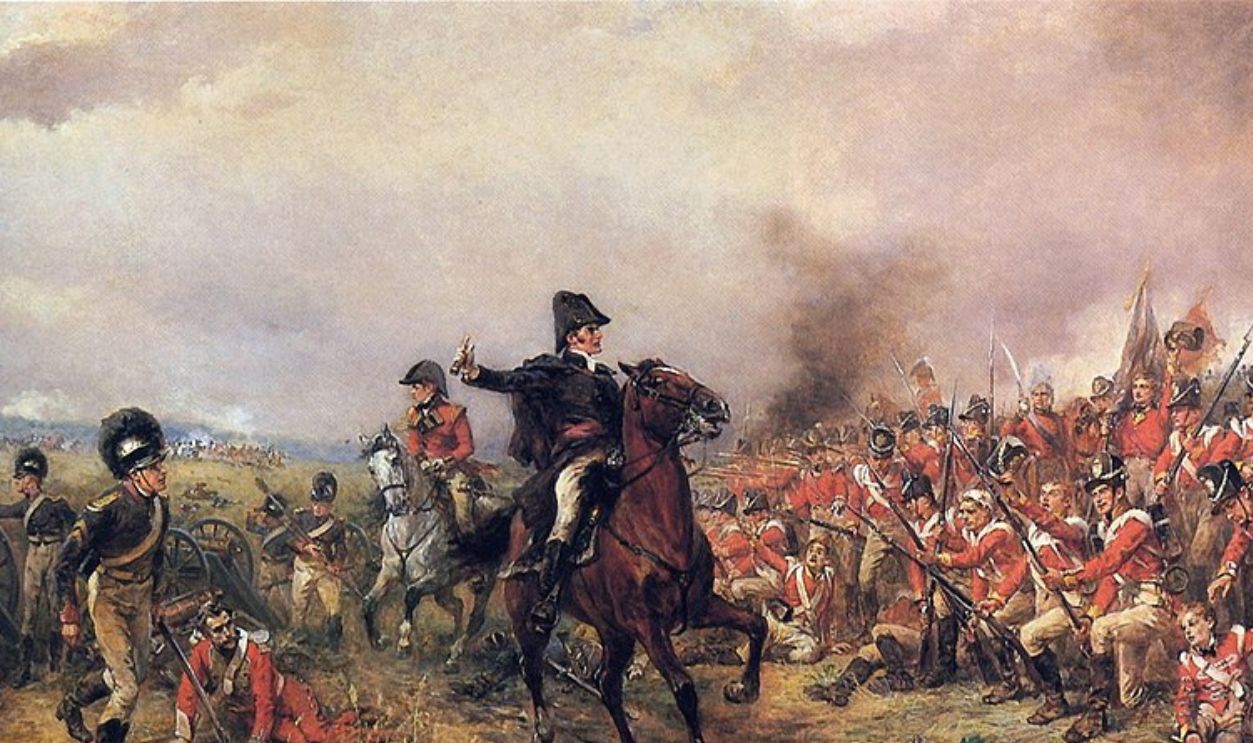 Robert Alexander Hillingford, Wikimedia Commons
Robert Alexander Hillingford, Wikimedia Commons
Final Struggle
Napoleon split his army and managed to defeat the Prussians. However, the British army, led by the Duke of Wellington, fought back strongly. This delay allowed the Prussian army to regroup and attack Napoleon's forces again. After winning five coalitions, Napoleon had now lost two in a row.
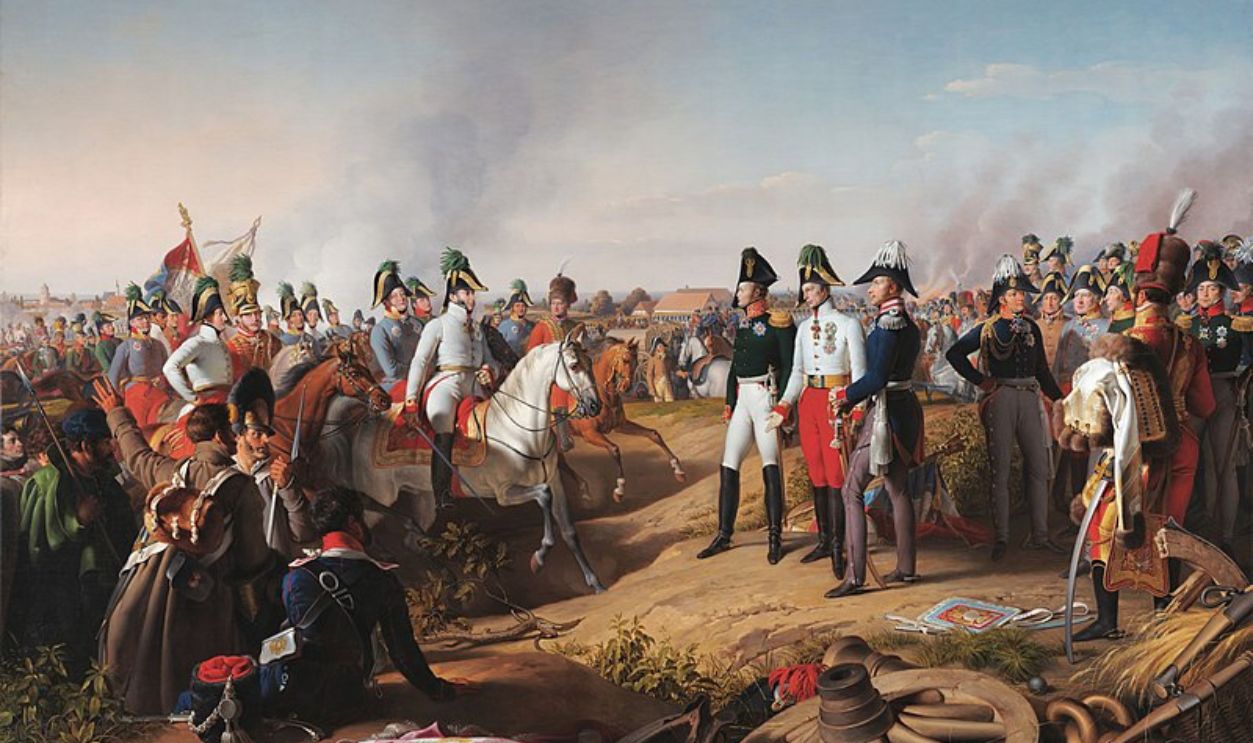 Johann Peter Krafft, Wikimedia Commons
Johann Peter Krafft, Wikimedia Commons
Final Exile
To make sure Napoleon could never come back, they decided to exile him farther away. Instead, they sent him to St. Helena, a very isolated island in the South Atlantic Ocean. This island was so remote that it was almost impossible for him to escape or make any plans.
Final Resting Place
Napoleon spent his later years on the island of St. Helena until he breathed his last on May 5, 1821, at 51 years old. He was buried there, but in 1840, his body was brought back to France. Now, his remains are in a place called the Dome des Invalides in Paris.
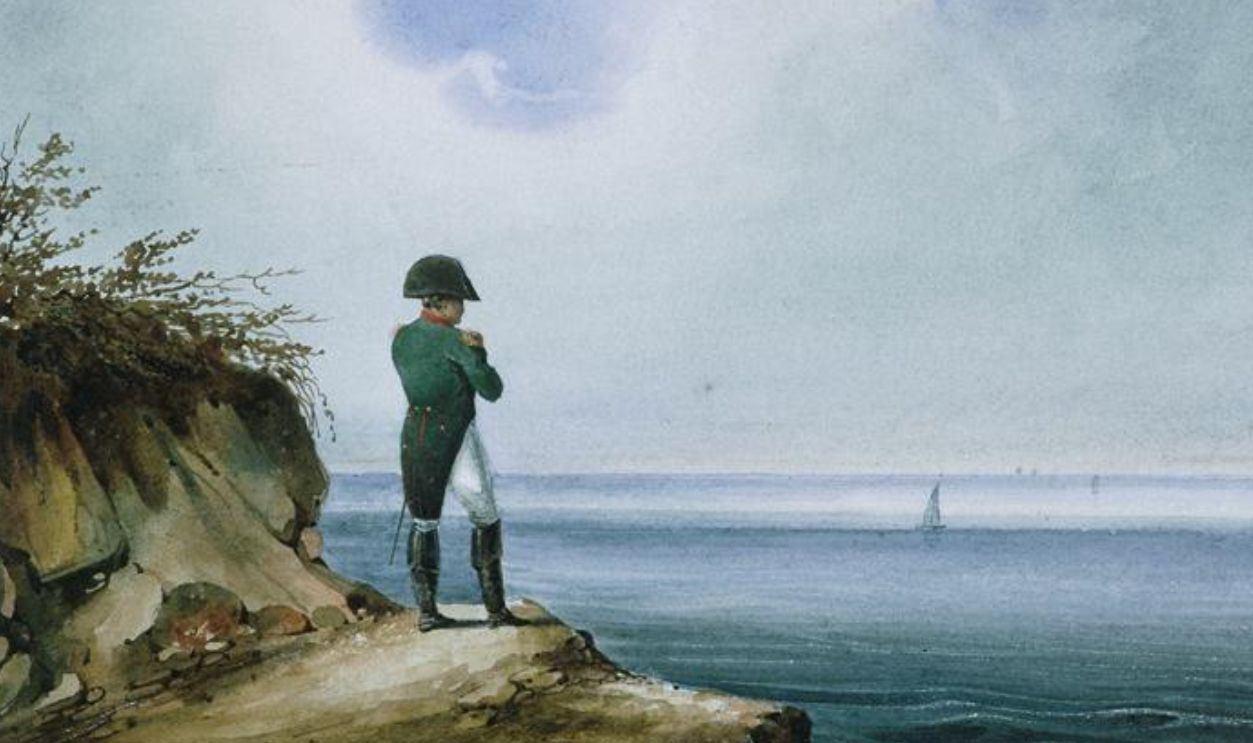 František Xaver Sandmann, Wikimedia Commons
František Xaver Sandmann, Wikimedia Commons
Lasting Changes
Napoleon made important changes that still matter today. Clear laws were established to improve and organize the legal system. A new money system was created to keep the economy stable. Schools were also improved to provide better education for everyone.
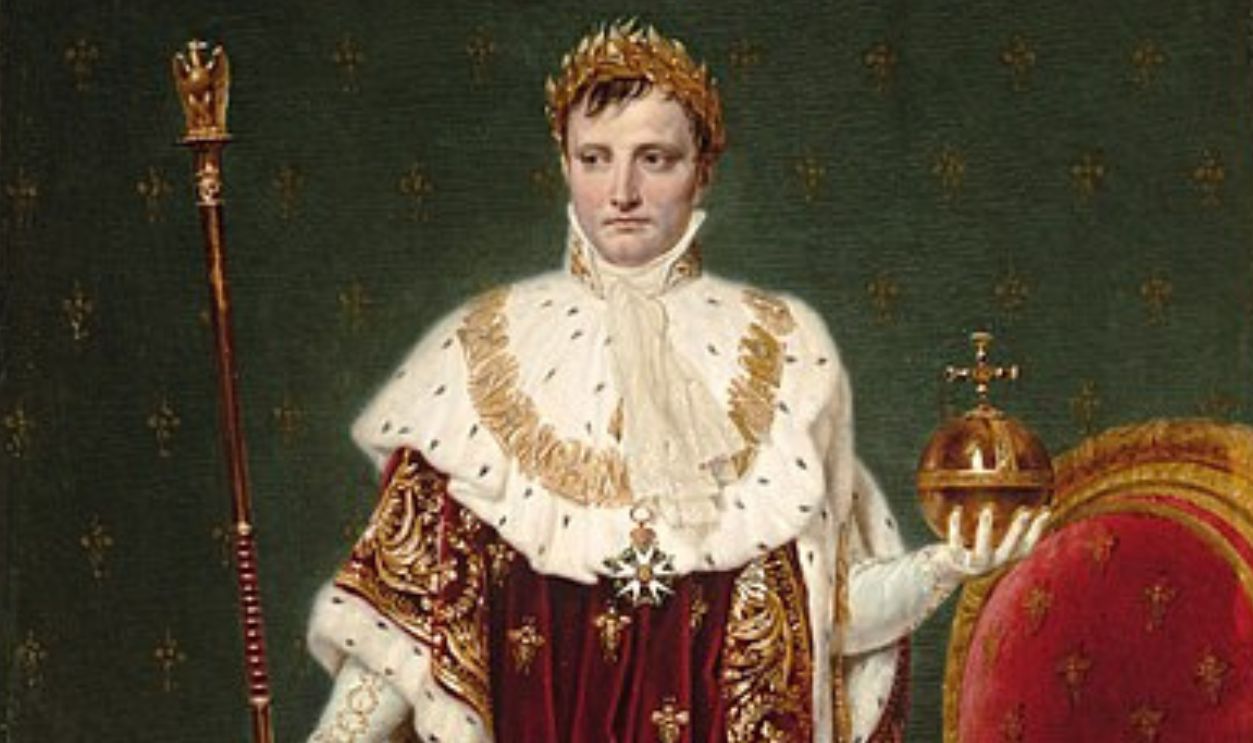 Jacques-Louis David, Wikimedia Commons
Jacques-Louis David, Wikimedia Commons

